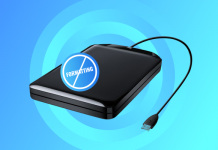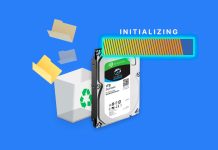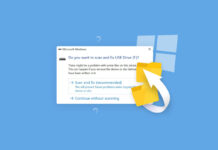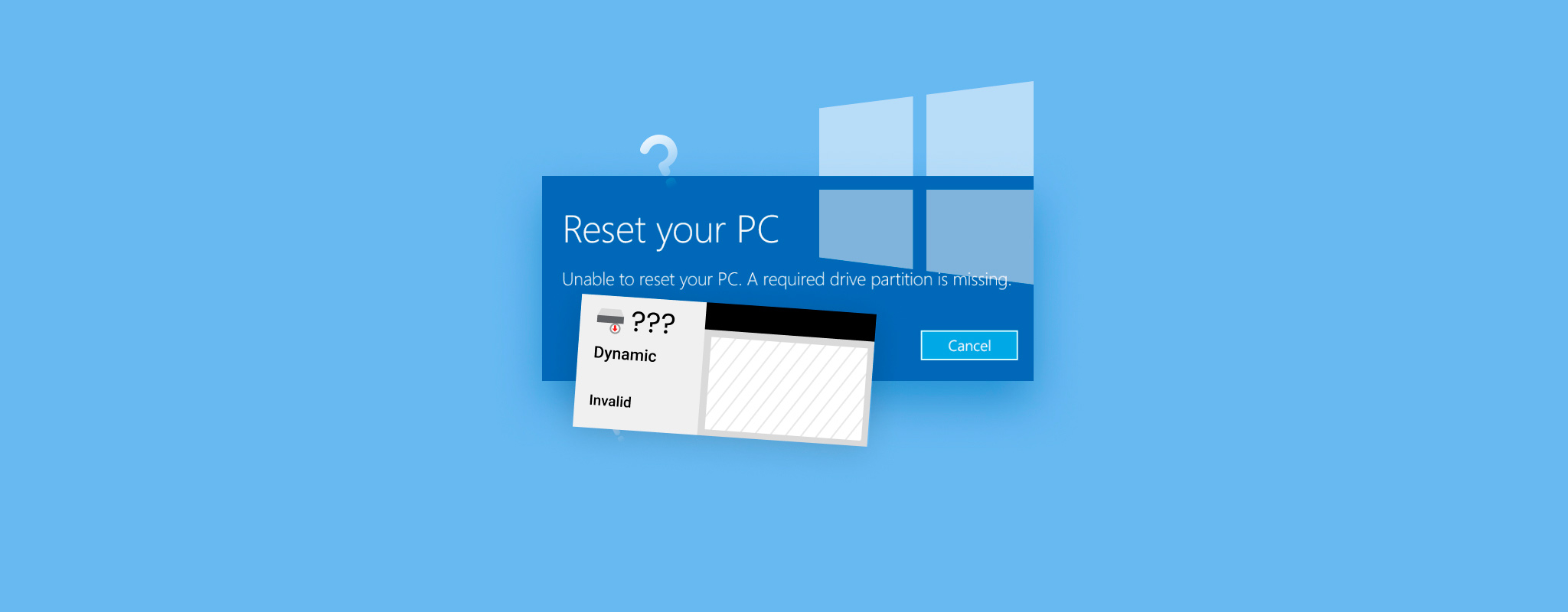 When one of your drive’s partitions is missing, it typically indicates that a problem has occurred with the drive, or maybe even the partition itself. Usually, the data is in a pretty good state, it’s just inaccessible.
When one of your drive’s partitions is missing, it typically indicates that a problem has occurred with the drive, or maybe even the partition itself. Usually, the data is in a pretty good state, it’s just inaccessible.
If left untreated for too long, the partition (along with the data on it) will become lost forever. Therefore, we recommend recovering the data from the partition and repairing it so it can be used once more. Read on to find out how.
All You Need to Know About Partitions
There’s a common misconception out there that the terms ‘partition’ and ‘disk’ are the same thing, likely because they’re sometimes used interchangeably. However, this is not the case. Here is a brief explanation of what each term refers to:
- Disk – The term ‘disk’ refers to the physical drive in your computer or laptop. The disk (which often refers to an HDD, and sometimes SSDs) is where your data is stored. A single disk can contain multiple partitions.
- Partition – A partition is a logical section of your disk that can use its own file system to store data. Even though multiple partitions can share the same physical disk, each partition will appear separately in your OS with its own assigned drive letter.
There are many reasons why a partition could become lost. Here are a few of the most common ones:
| Problem | Description |
| 🙅♂️ User error | Never rule out user error in cases like these. A few missteps while using Disk Management or DiskPart can lead to one or more partitions going missing from the drive. |
| ❌ OS error | If your OS encounters an error, like problems with the Windows Registry, the partition may disappear as a result. |
| 🔌 Power failure | Sudden power failure can cause corruption to your disk, causing the file system (and also your data) to become corrupted. If so, the partition will no longer be visible or accessible. |
| 👎 Disk corruption | Physical or logical disk corruption can happen due to bad sectors, hardware failure, and file system corruption. It will lead to a multitude of problems, including the disappearance of your partitions. |
| 🦠 Malware attack | Although the built-in Microsoft Defender introduced with Windows 10 is likely to catch most malware, it doesn’t have a 100% catch rate. If your computer is infected with, let’s say, an MBR virus, the entry for your partition may have been damaged or corrupted. |
Missing partitions can lead to a bunch of errors. For instance, you may end up being faced with the message “Unable to reset your PC. A required drive partition is missing.” when attempting to reset your PC to fix the issue. Or, your computer may no longer boot properly because your EFI partition is missing. Either way, we’re going to show you how to keep your data safe and restore the missing partition.
How to Avoid Losing Data from a Missing Partition
The methods we’ll be introducing to restore your lost partition may result in the loss of your data, so we highly recommend you recover the data now using a professional data recovery tool.
To accomplish this, we’ll make use of Disk Drill, an excellent data recovery solution that specializes in recovering data in almost any data loss situation, including this one. This is our preferred data recovery tool because it has an advanced all-in-one scanner that not only recovers as much data as possible, but it’s also able to find lost or deleted partitions.
As always with data recovery, it’s best to make a backup of the drive as it is now. You can do so using the free Drive Backup feature in Disk Drill (be mindful of the 500 MB free recovery limit) or using other third-party software.
Follow these steps to recover data from a missing partition on Windows 11 using Disk Drill:
- Download and install Disk Drill to a healthy drive.
- Select the drive with the missing partition, then click Search for lost data to begin the scan.
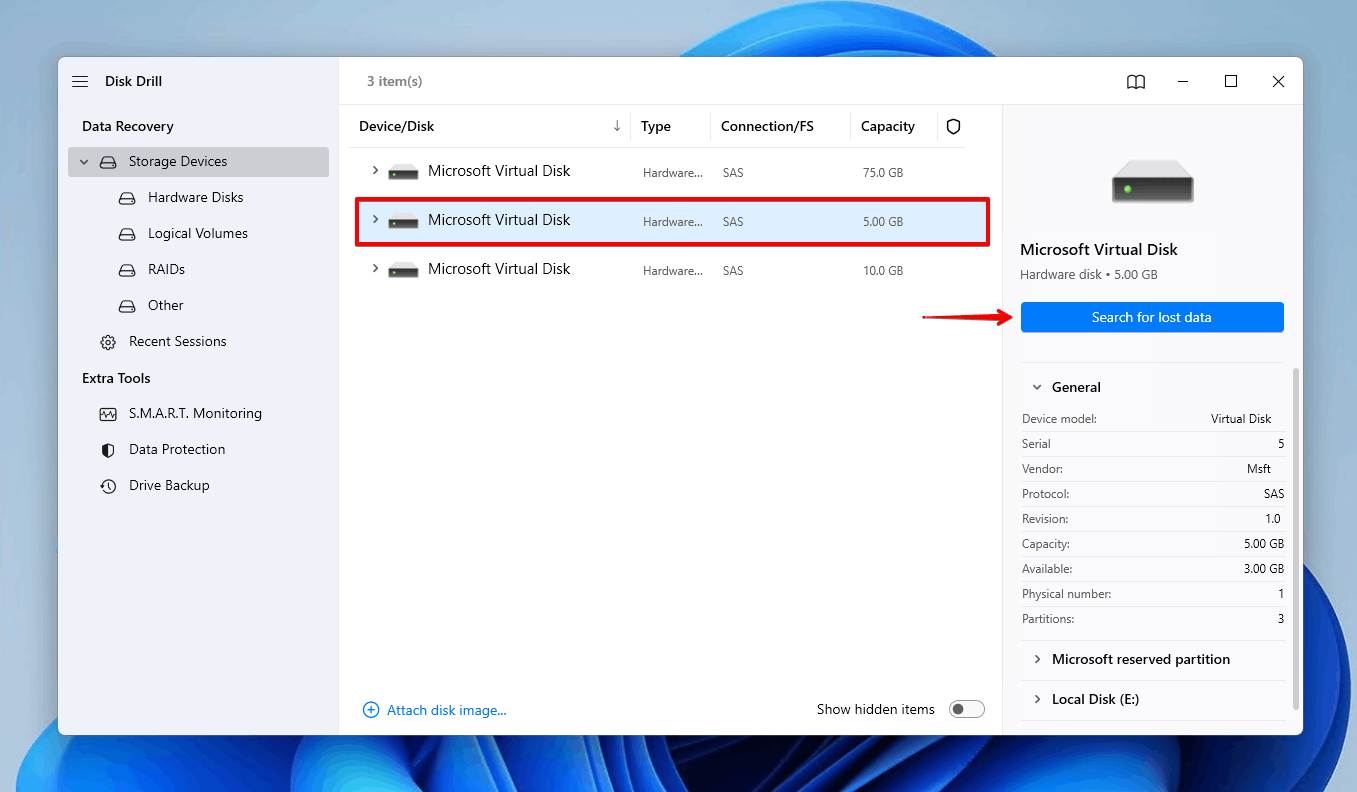
- Click Review found items to explore the recovery results screen. Alternatively, click Recover all to recover everything that Disk Drill found.
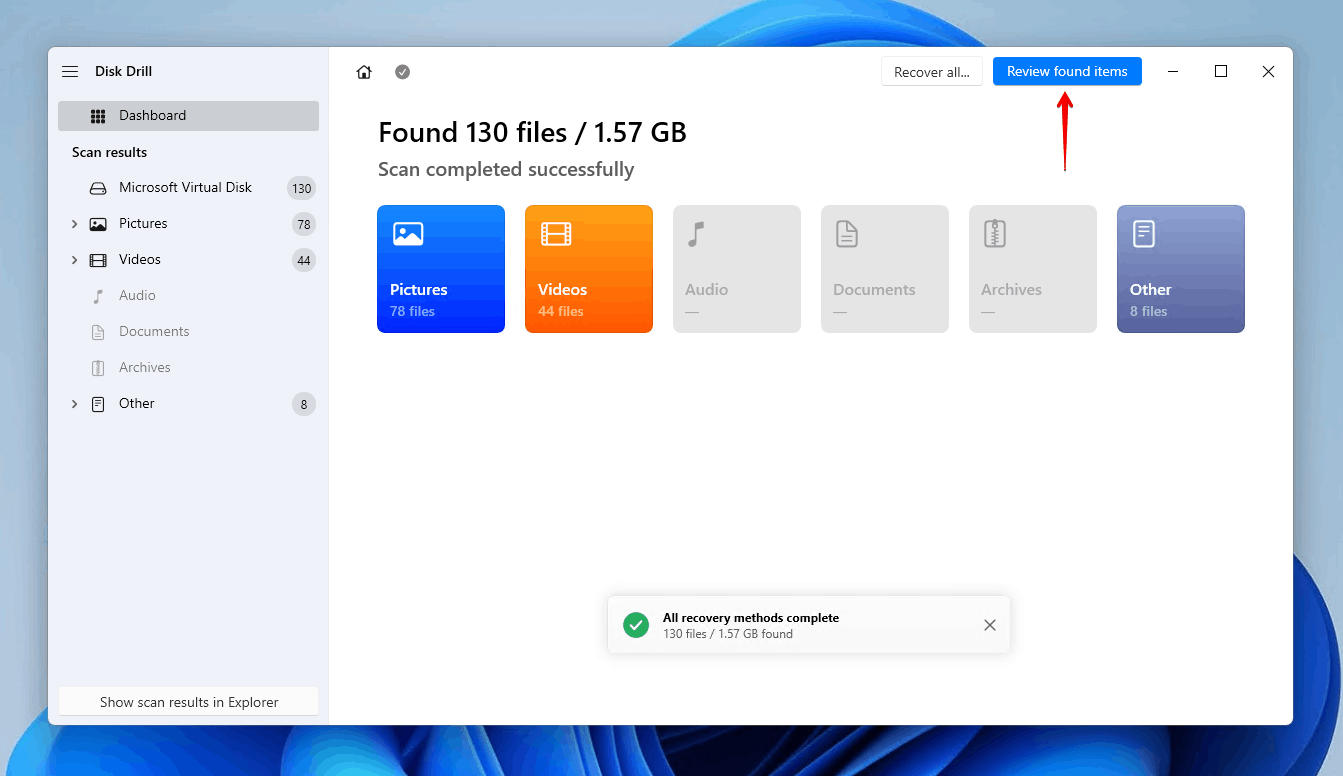
- Select the files that you wish to recover. Existing data can be found in the Existing section, while any data that was deleted will be in the Deleted or lost or Reconstructed sections. Use the recovery results column and preview function to verify recoverability. When ready, click Recover.
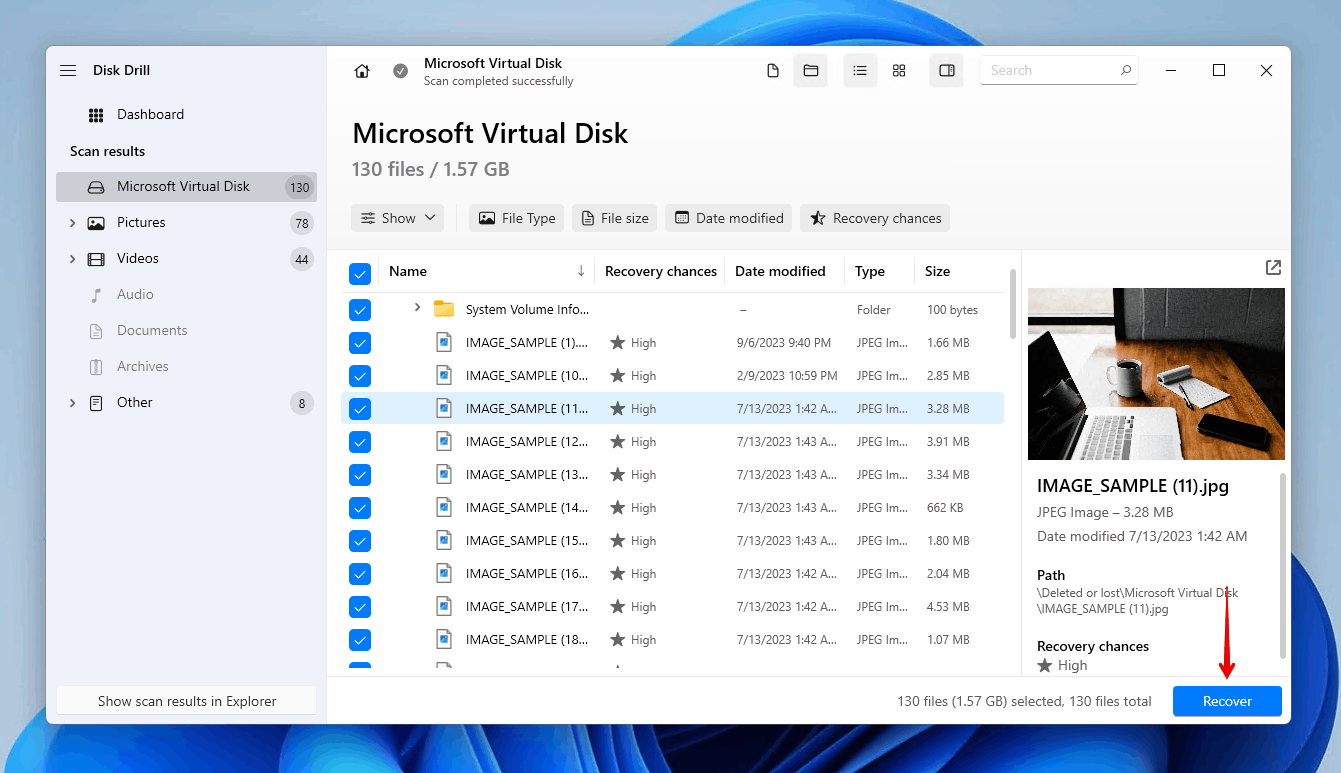
- Choose a safe recovery location on a separate storage device, then click Next to finish data recovery.
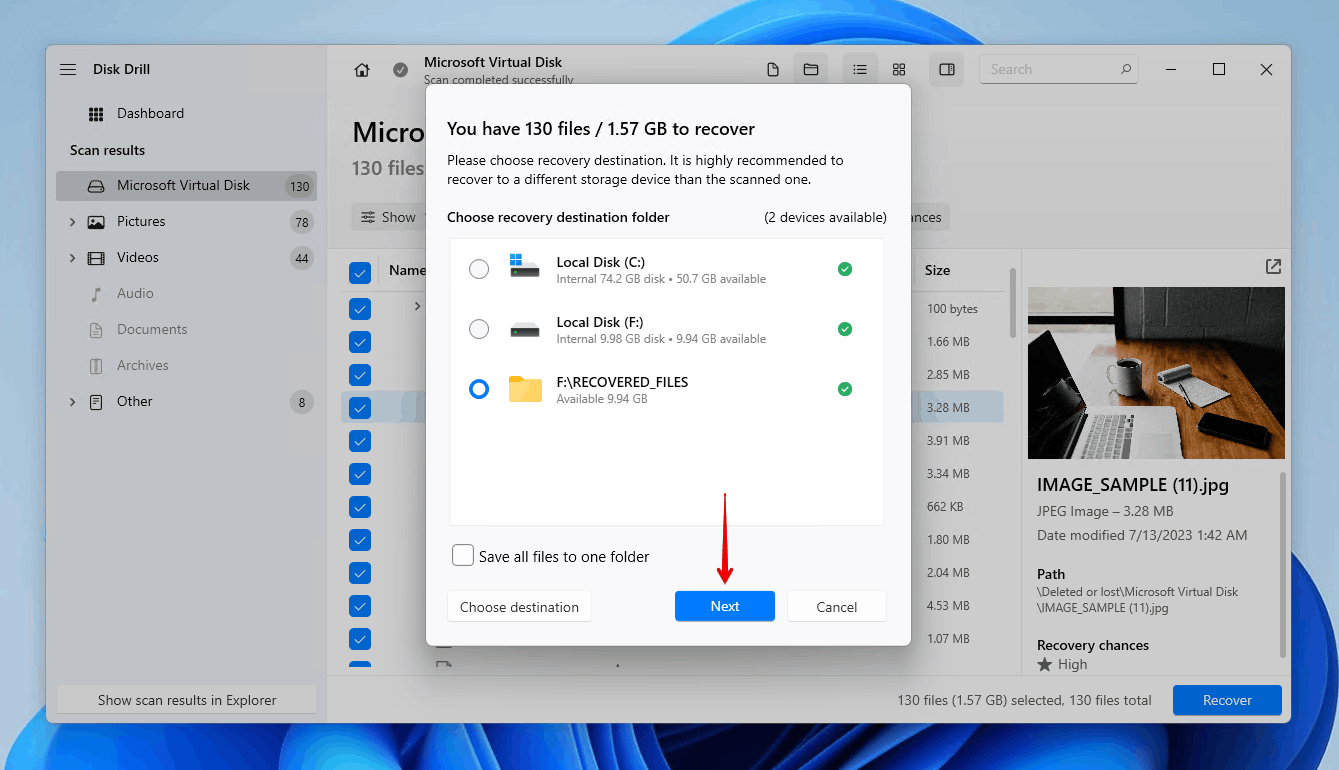
How to Restore a Missing Partition
Once your data is recovered (or at least backed up), you can move on to restoring the missing partition using one of the multiple solutions that we’ve outlined below.
If you’re wondering how to recover a lost partition on an external hard drive, these methods will also work.
Method 1: Assign a Drive Letter to an Existing Partition
In some cases, the partition may not appear in file management tools like File Explorer because it hasn’t been assigned a drive letter. Without a drive letter, Windows will not allow you to access the partition.
As you might’ve guessed, you can easily fix this problem by assigning a drive letter or changing the existing one. We’ll show you how to do this with Disk Management and DiskPart.
Disk Management
Follow these steps on how to find a missing partition in Windows by assigning a drive letter:
- Right-click Start and click Disk Management.
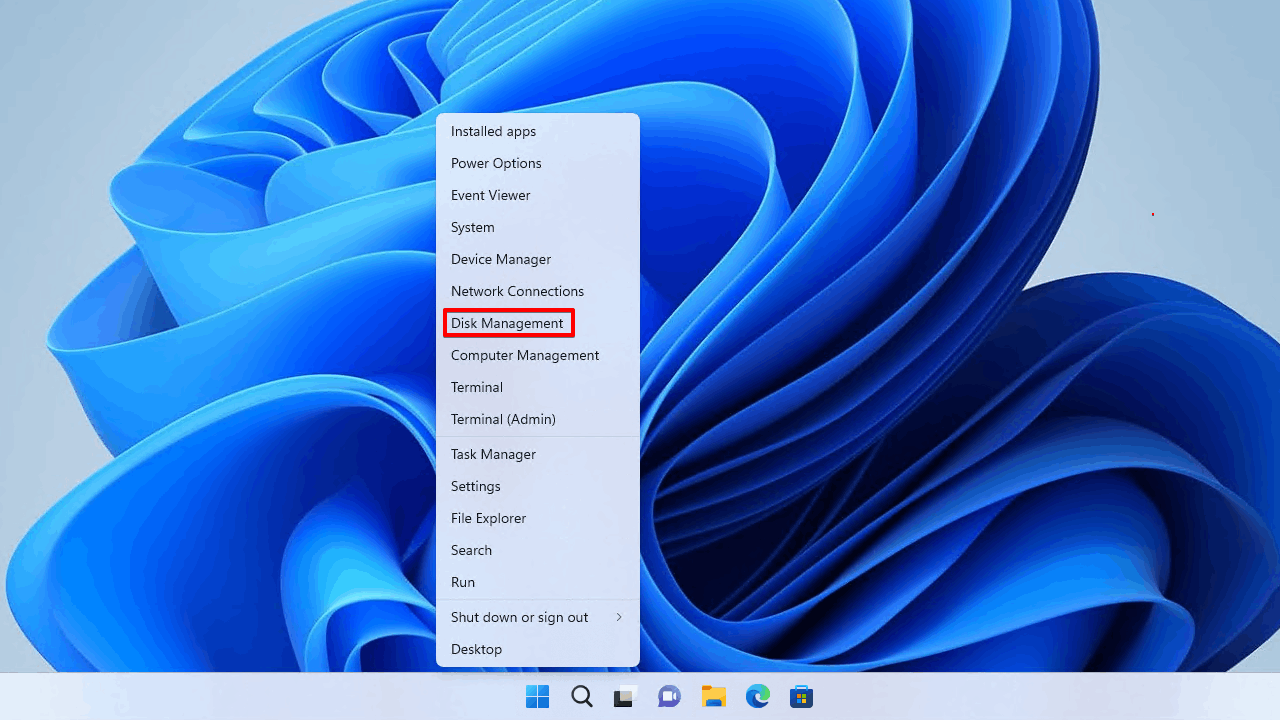
- Right-click the partition without a drive letter and click Change Drive Letter and Paths.
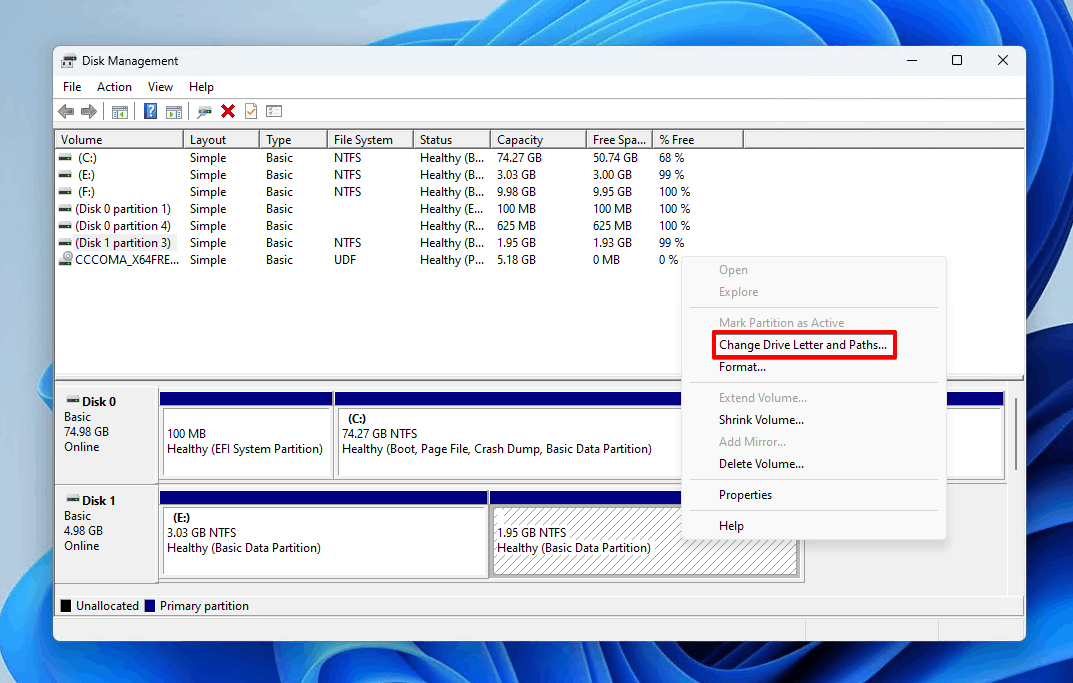
- Click Add.
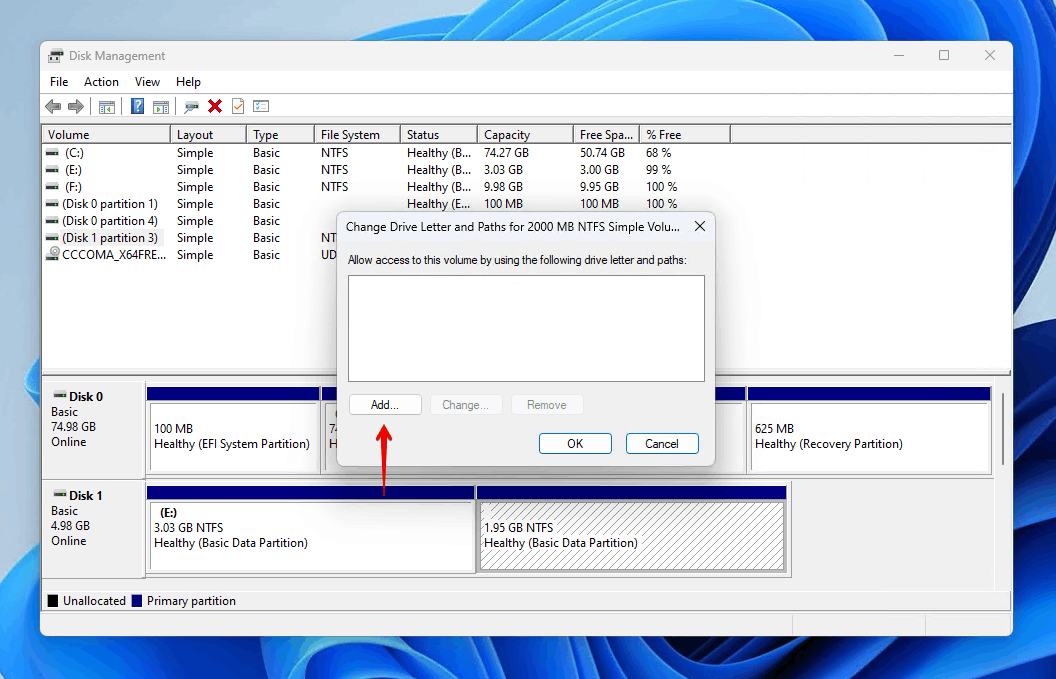
- Choose a drive letter then click OK.
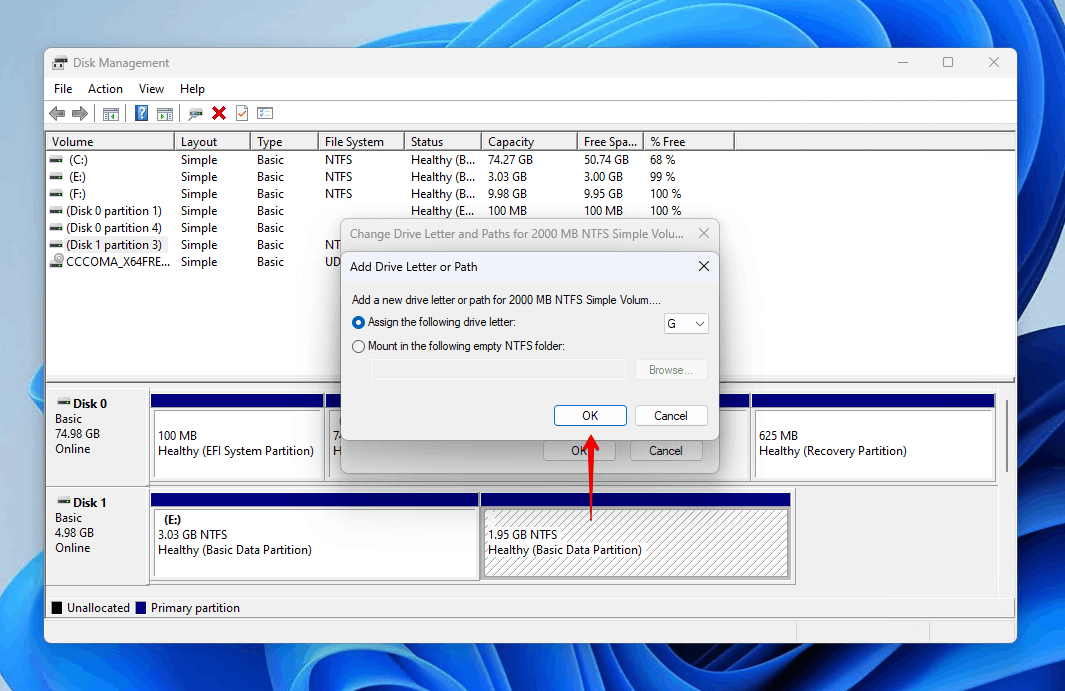
DiskPart
If Disk Management doesn’t work for you, or you simply prefer a command-line interface, this can also be accomplished using DiskPart through CMD:
- Right-click Start and click Terminal (Admin).
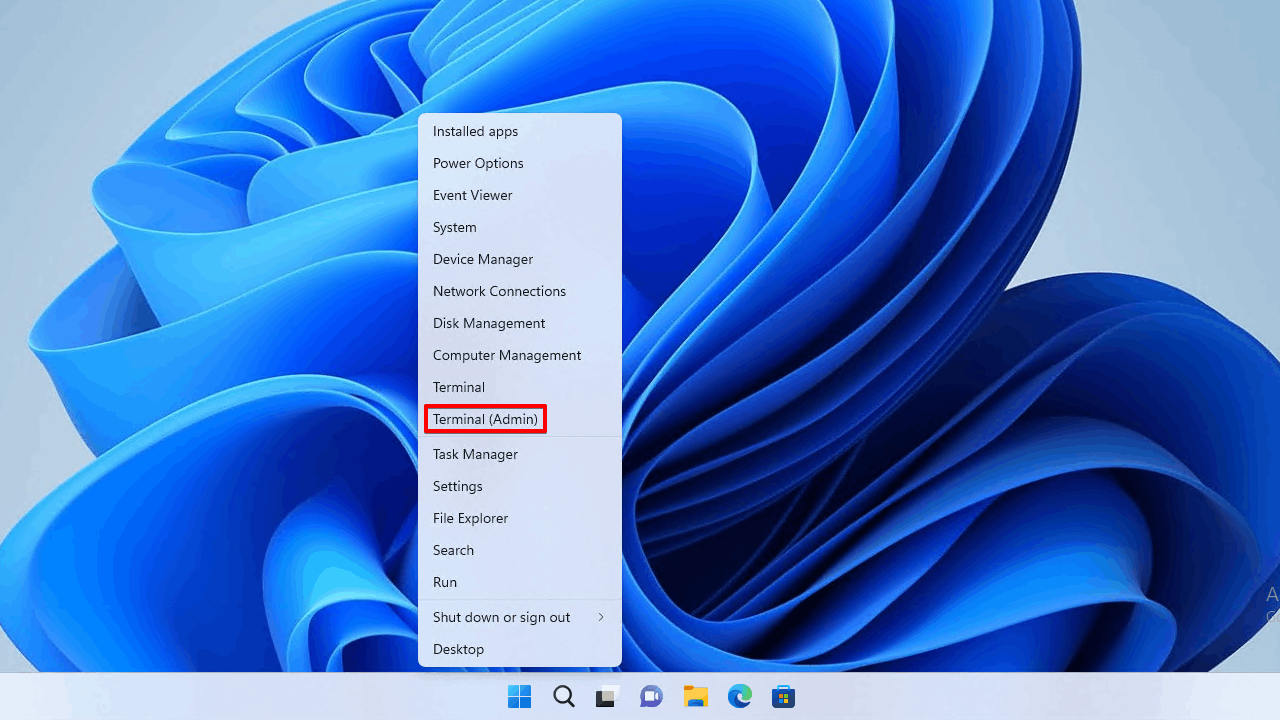
- Type
diskpartand press Enter.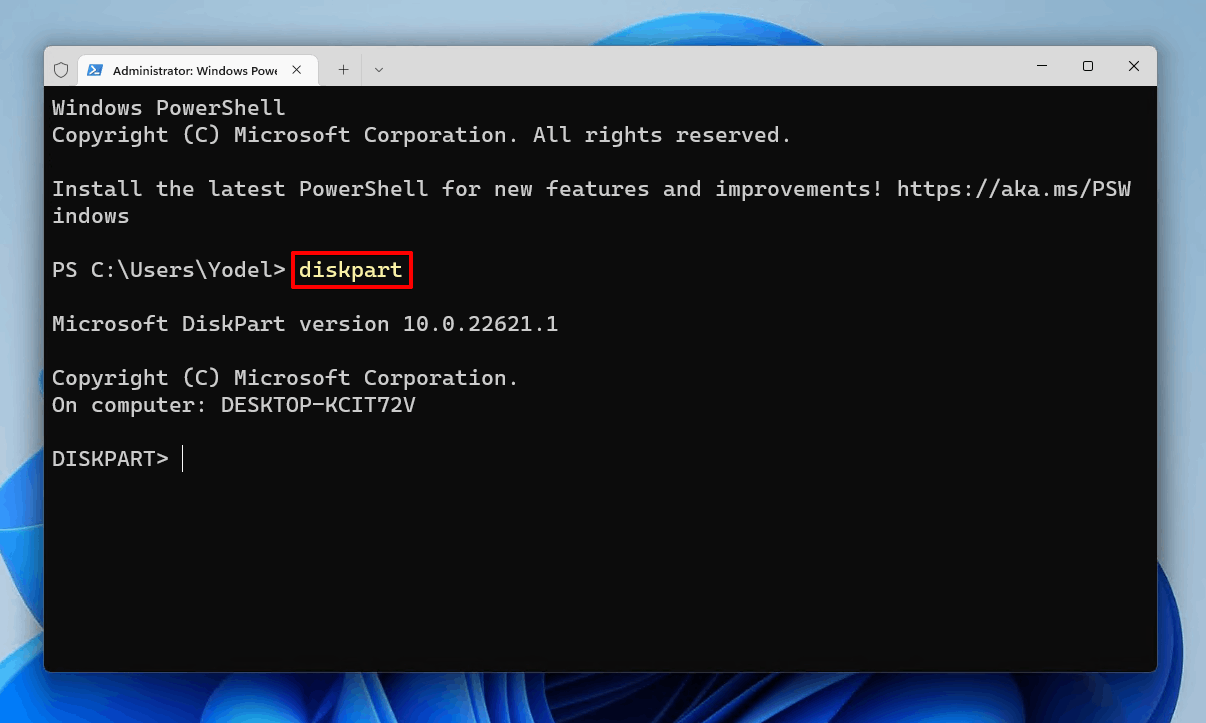
- Type
list volumeand press Enter.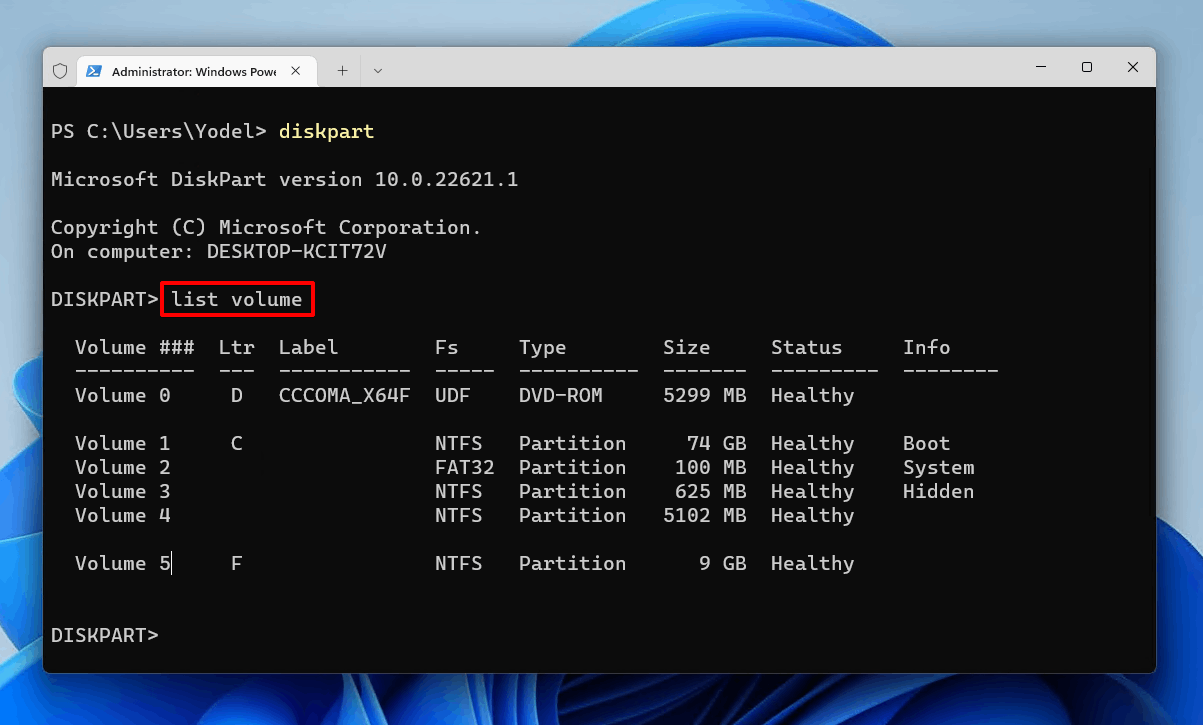
- Type
select volume *. Replace * with your volume number. Press Enter.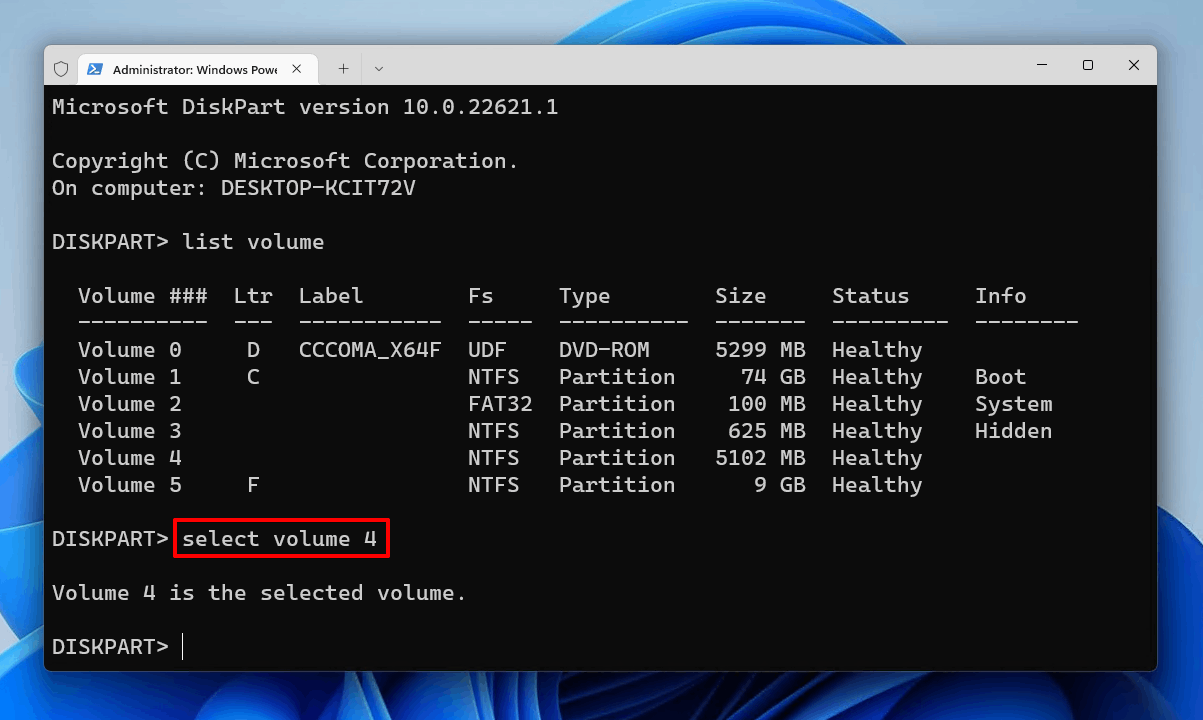
- Type
assignand press Enter.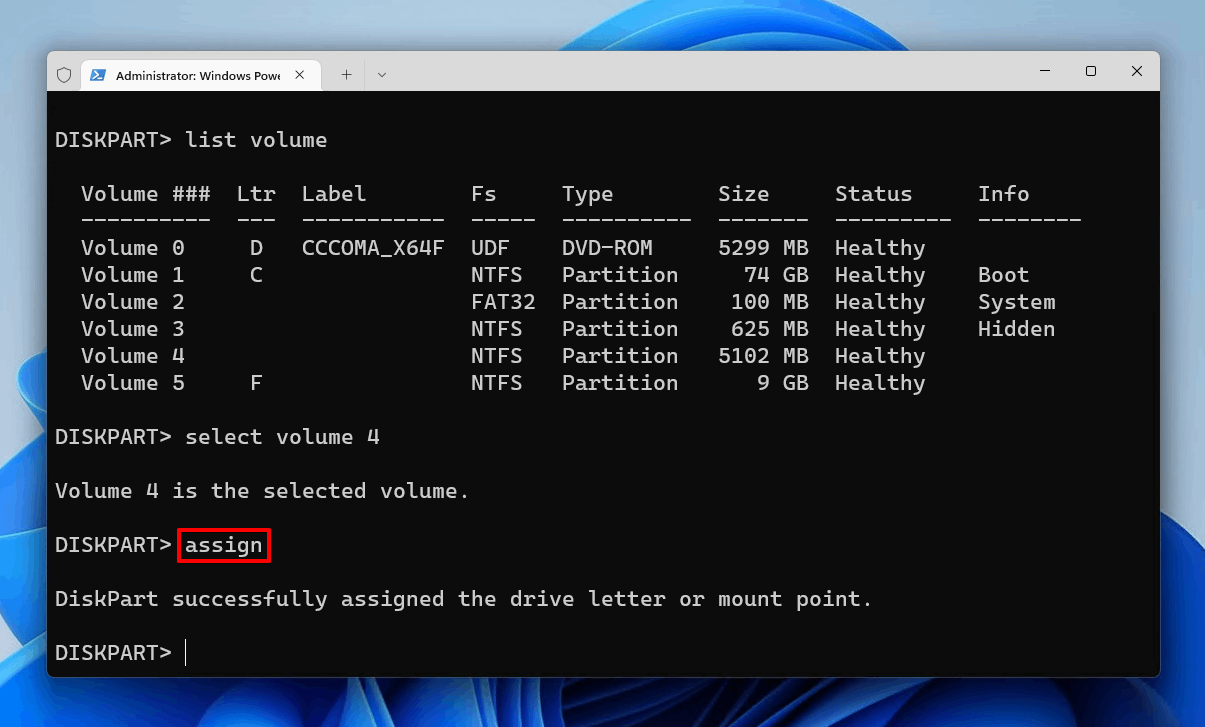
Method 2: Attempt to Recover the Partition Using a Specialized Tool
TestDisk is another type of data recovery tool that may be able to recover your lost partition for free by repairing the underlying damage that caused it to become lost. The program is open-source and works with basically any operating system (meaning it’s also great for recovering deleted partitions on Mac).
Follow these steps to learn how to recover a lost partition in Windows using TestDisk:
- Download and extract TestDisk. Open testdisk_win.
- Press Enter to create a log file.
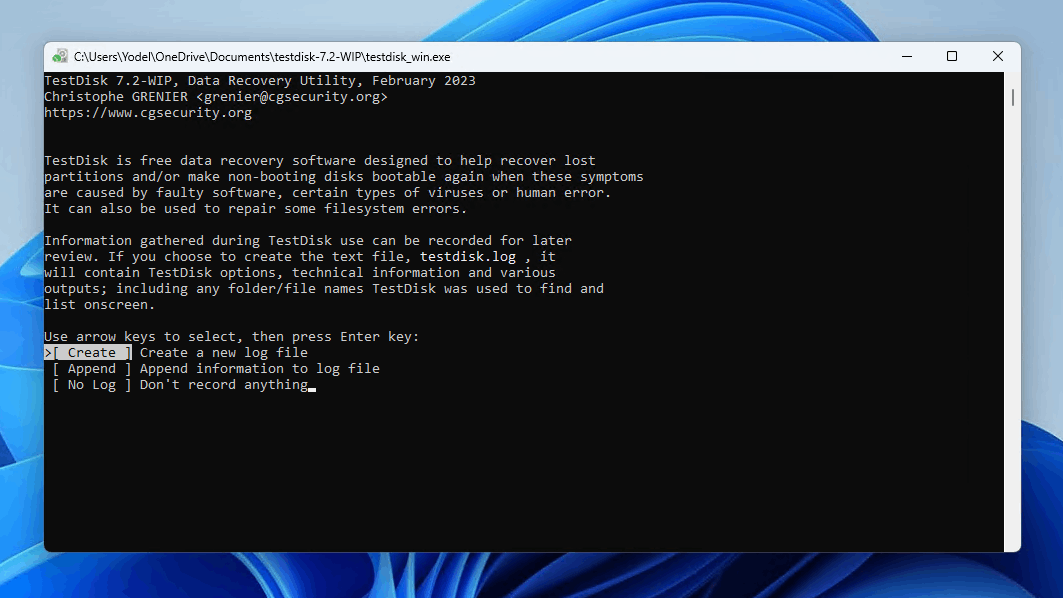
- Highlight the disk that contains the missing partition and press Enter.
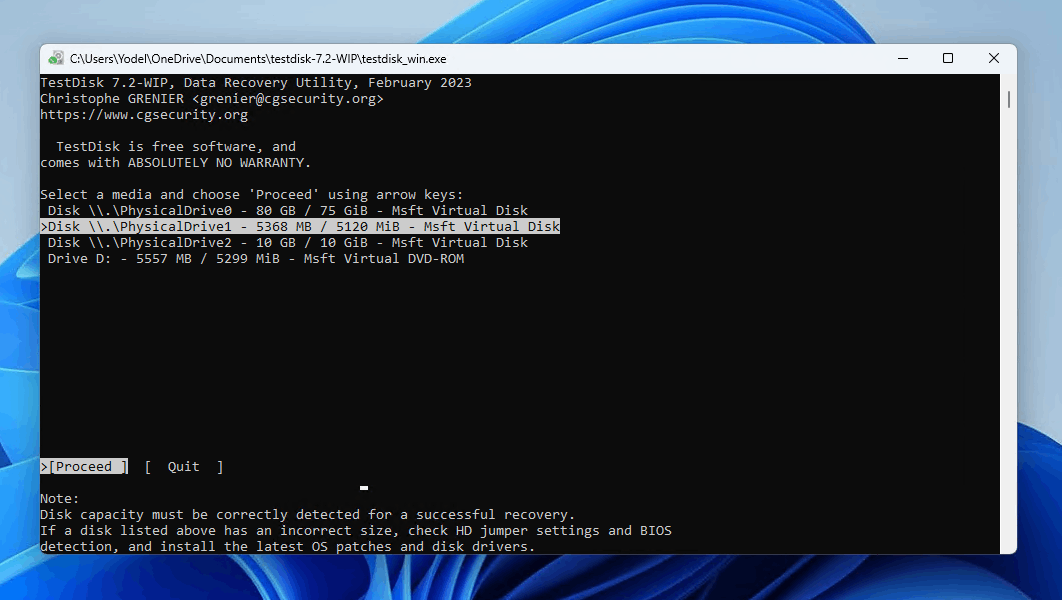
- Choose your file system and press Enter.
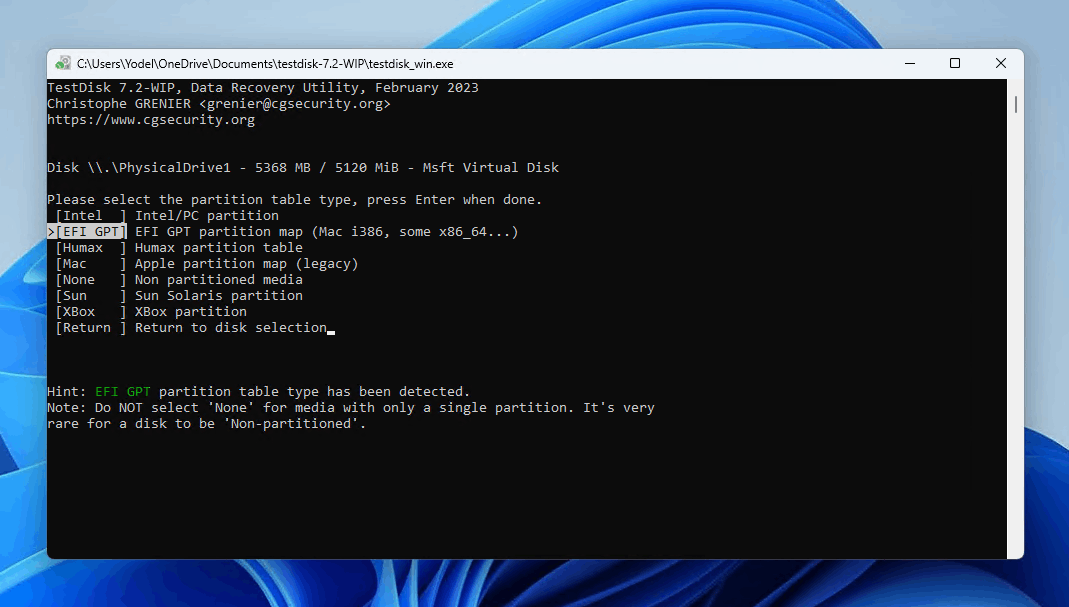
- Press Enter to begin analyzing the partition structure and searching for lost partitions.
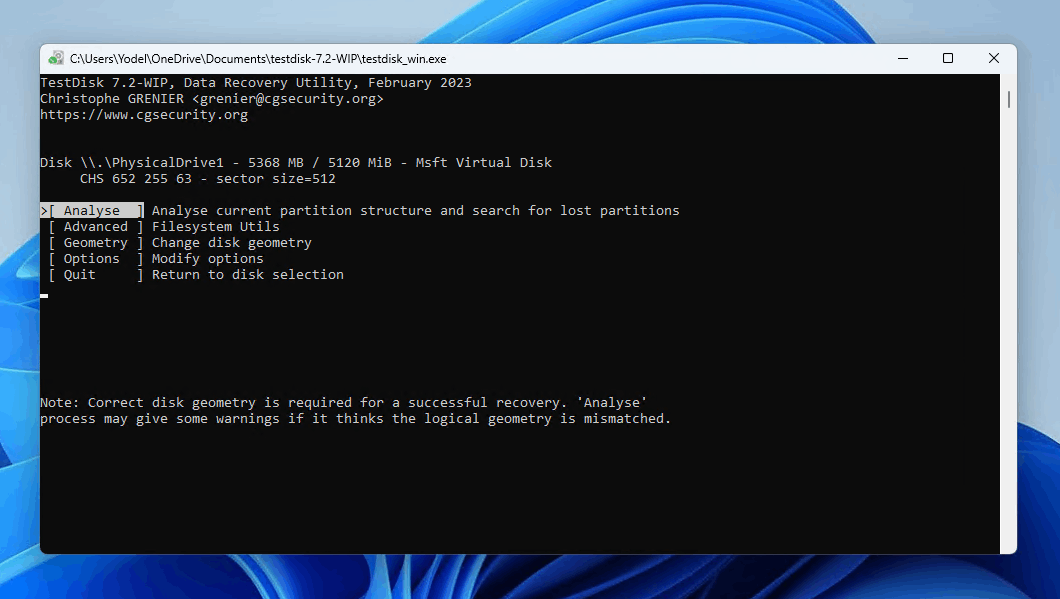
- Press Enter to start the quick search.
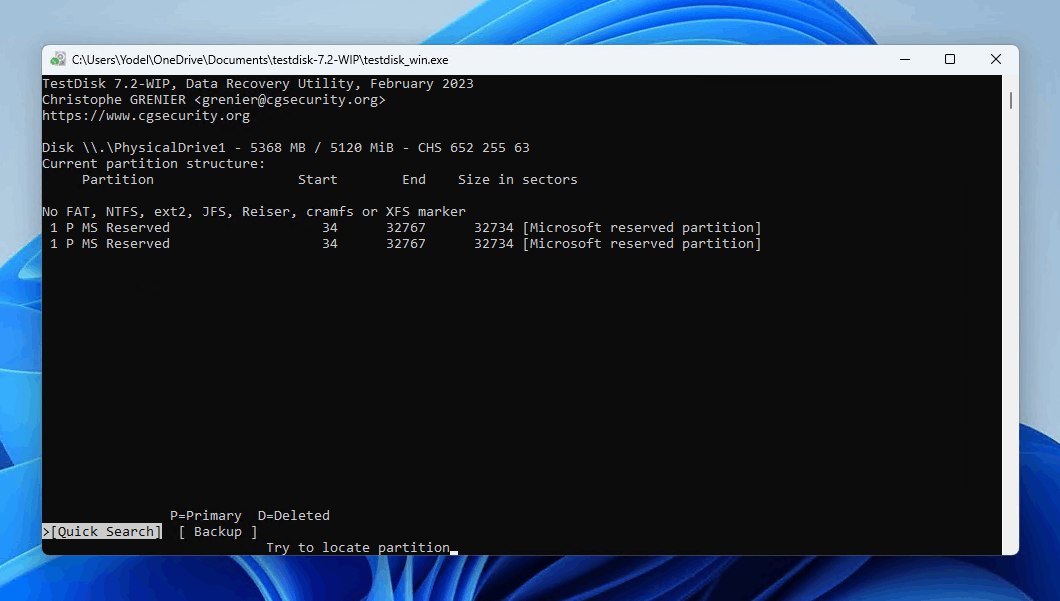
- Select the partition you wish to restore and press Enter.
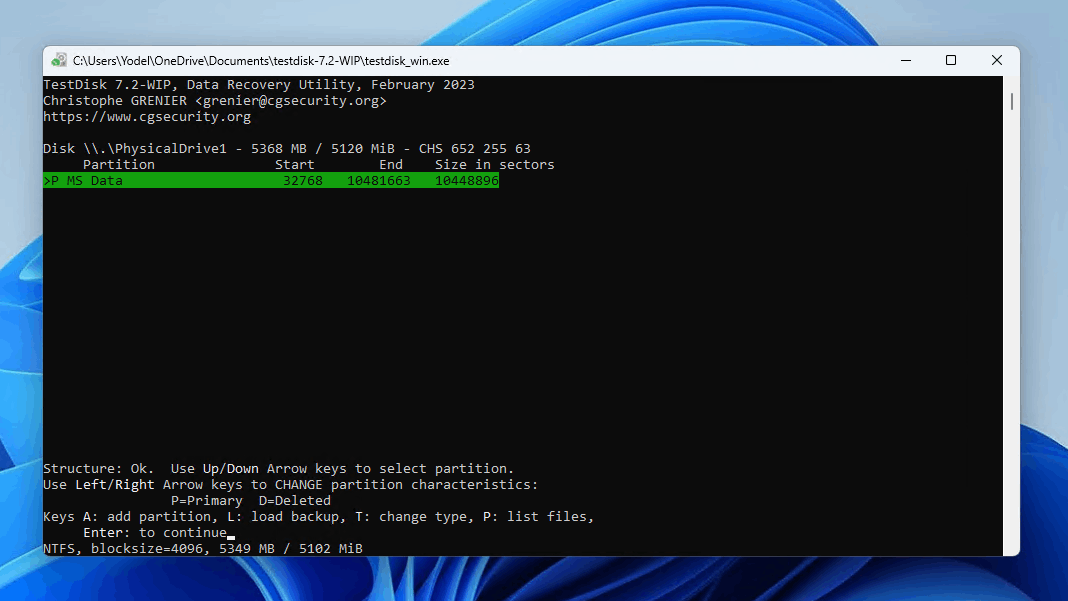
- Highlight the Write option, then press Enter if you’re satisfied with the partition structure.
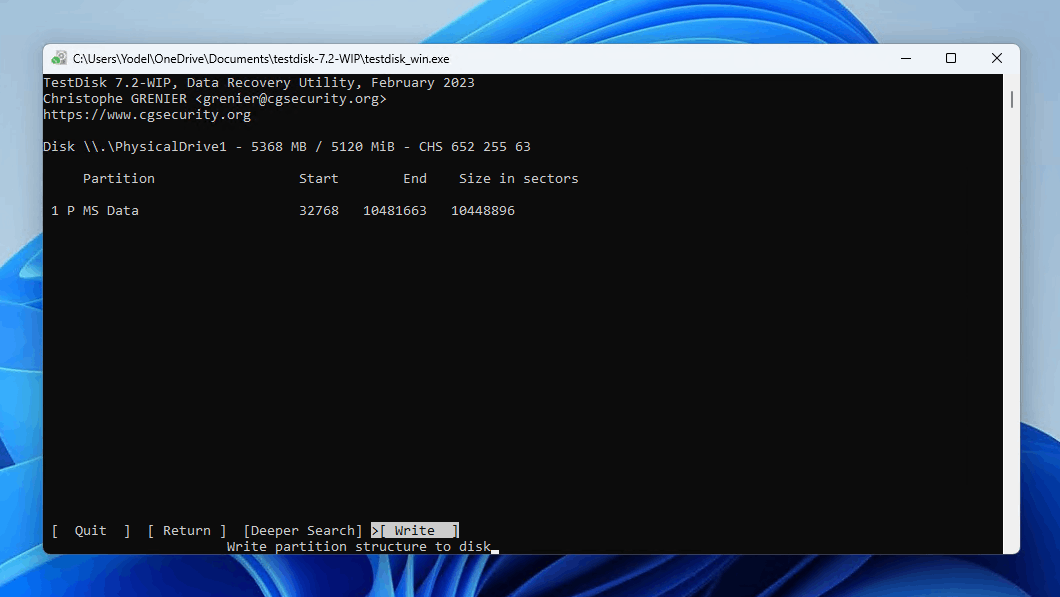
- Press Y to confirm. Reboot your computer after it’s done.
Method 3: Recreate the Partition
If your partition disappeared in Windows and none of the aforementioned solutions were enough to fix it, you can always just manually recreate it. Creating a new partition in place of the old one will not bring back the data, but it will allow you to start writing data to the partition again.
We’ll show you how to recreate the partition using Disk Management and DiskPart.
Disk Management
This is how you set up a new partition and format it using Disk Management:
- Right-click Start and click Disk Management.

- Right-click the unallocated space on the disk, then click New Simple Volume.
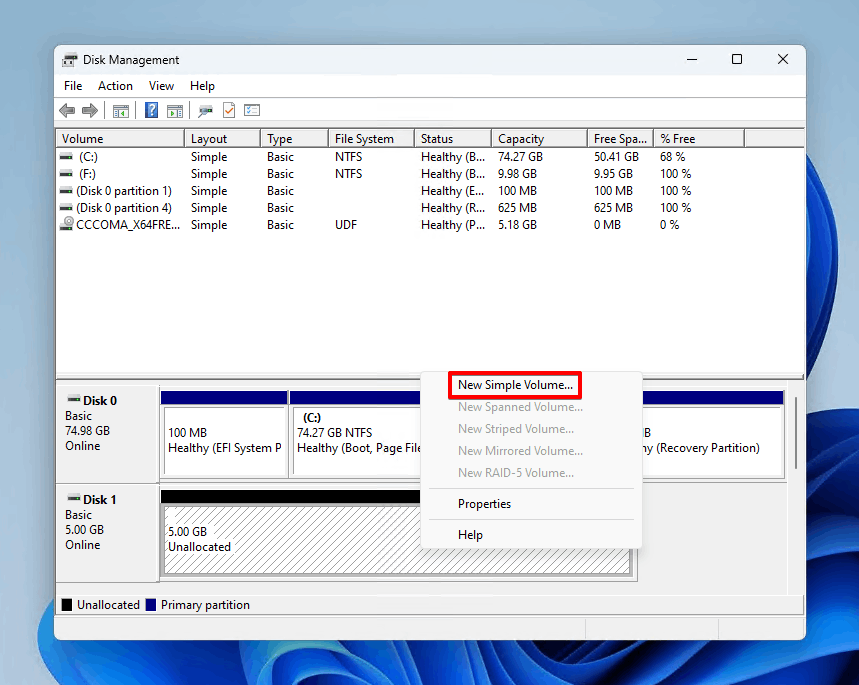
- Click Next.
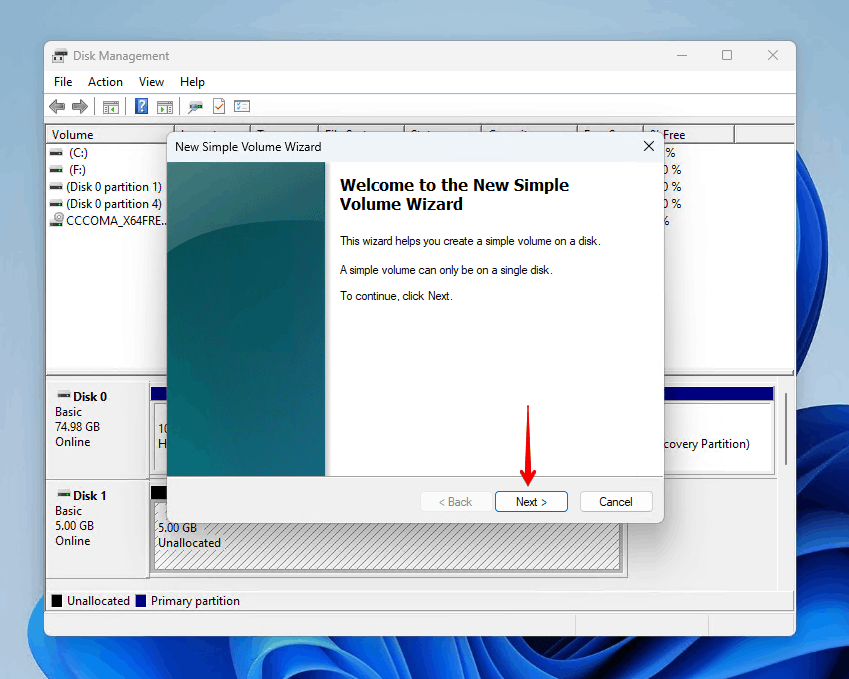
- Specify the volume size then click Next.
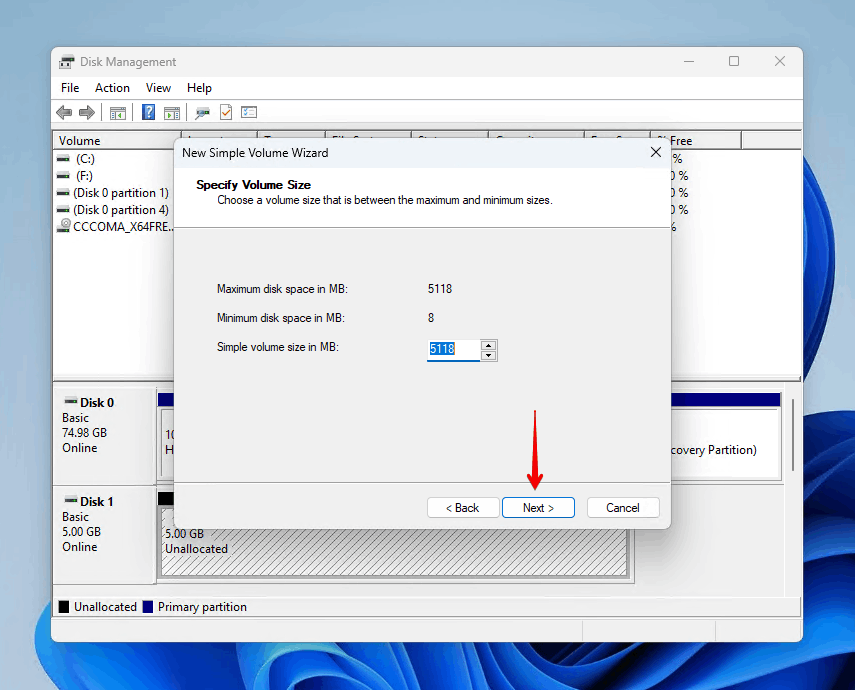
- Choose a drive letter and click Next.
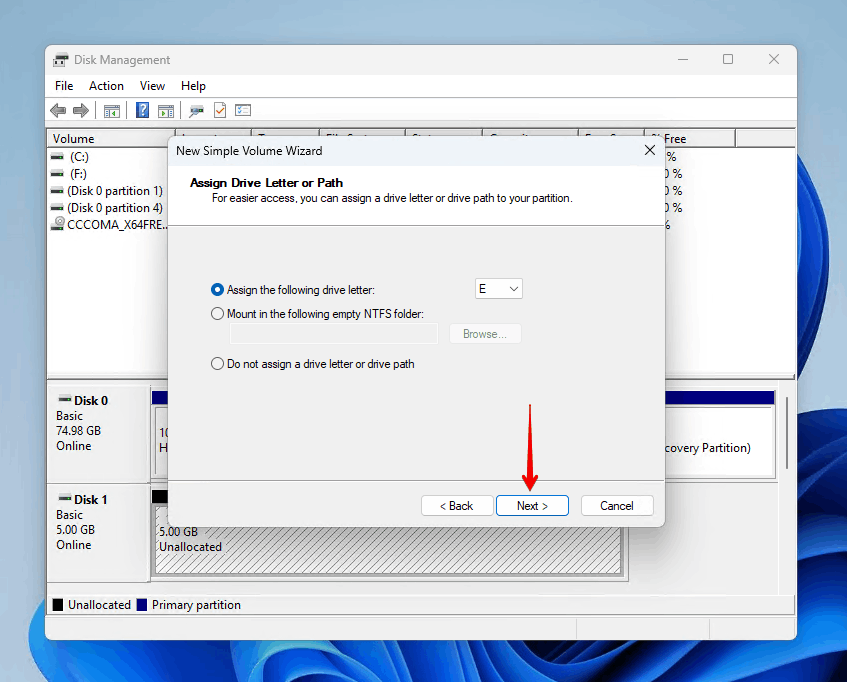
- Choose the file system and give the volume a label. Make sure that Perform a quick format is ticked, then click Next.
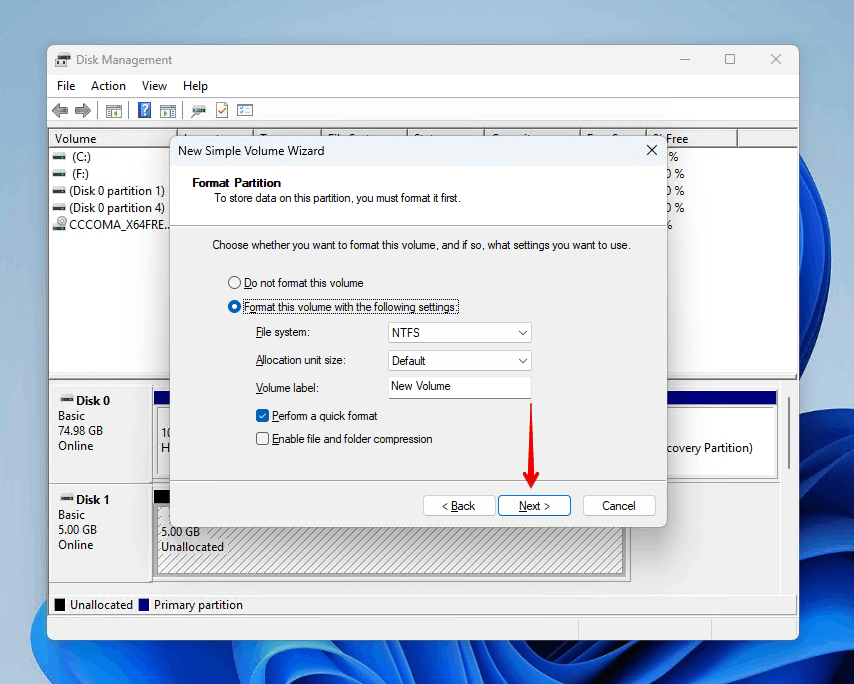
- Click Finish.
DiskPart
And, here’s how you can do the same with DiskPart:
- Right-click Start and click Terminal (Admin).

- Type
diskpartand press Enter.
- Type
list diskand press Enter.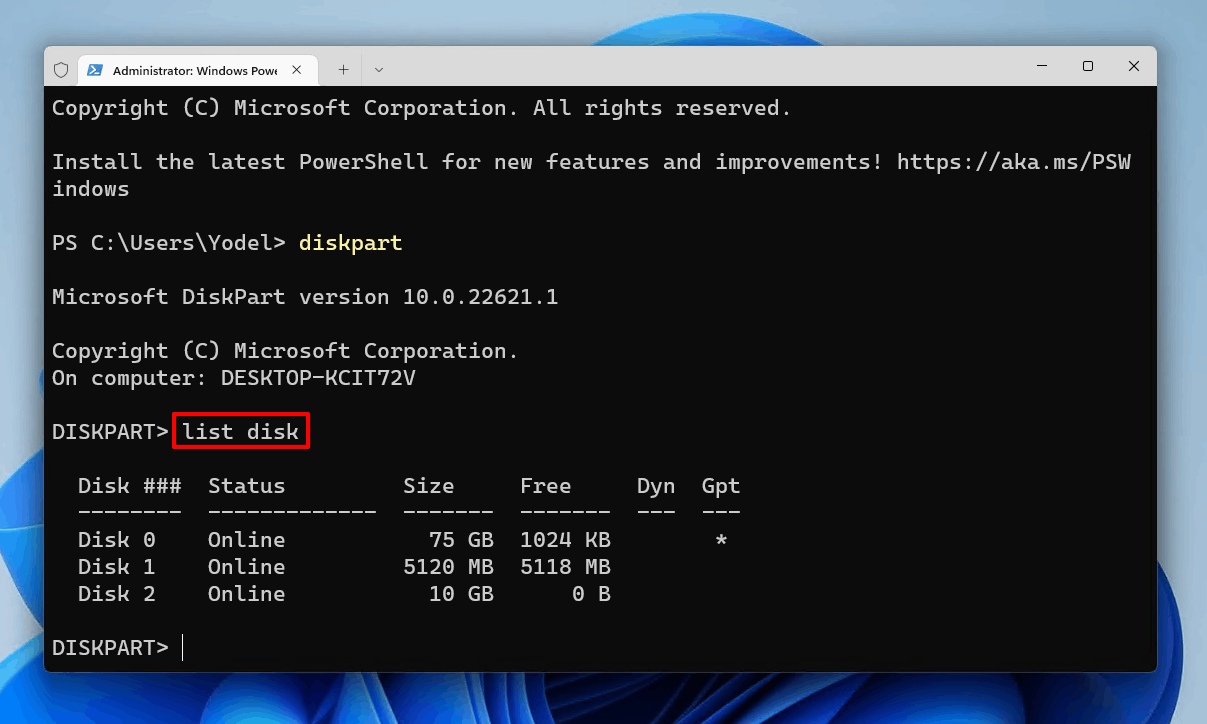
- Type
select disk *. Replace * with your disk number. Press Enter.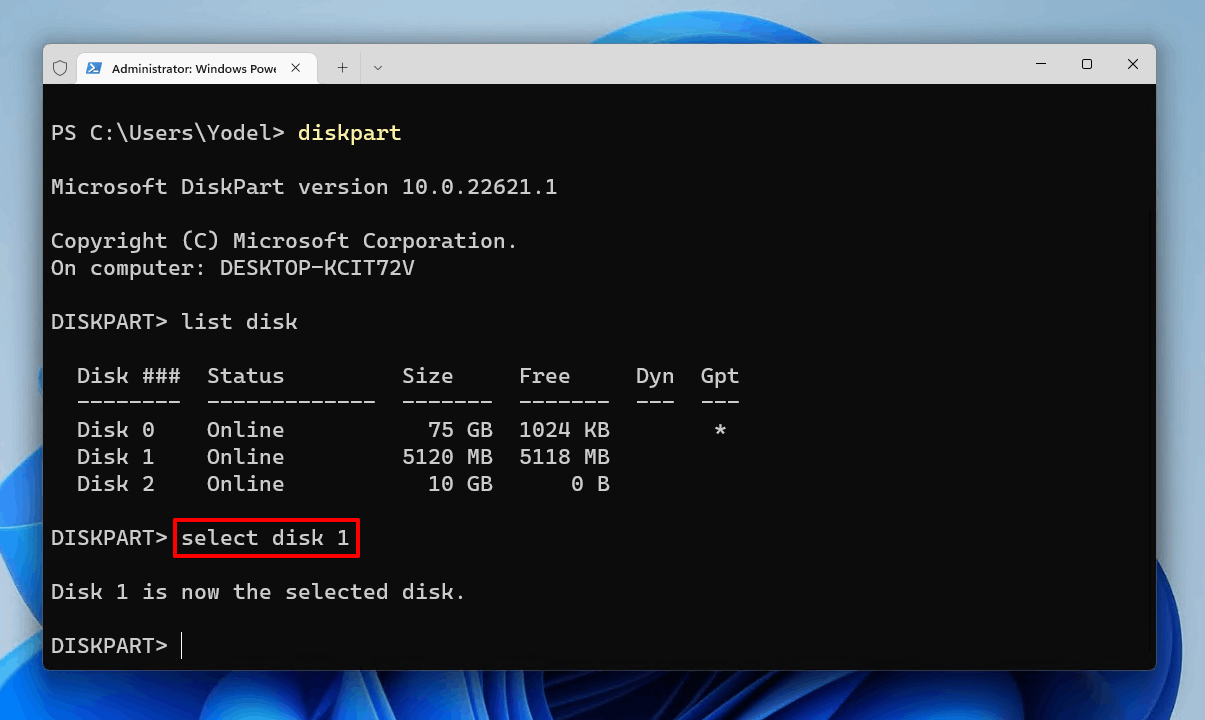
- Type
create partition primaryand press Enter.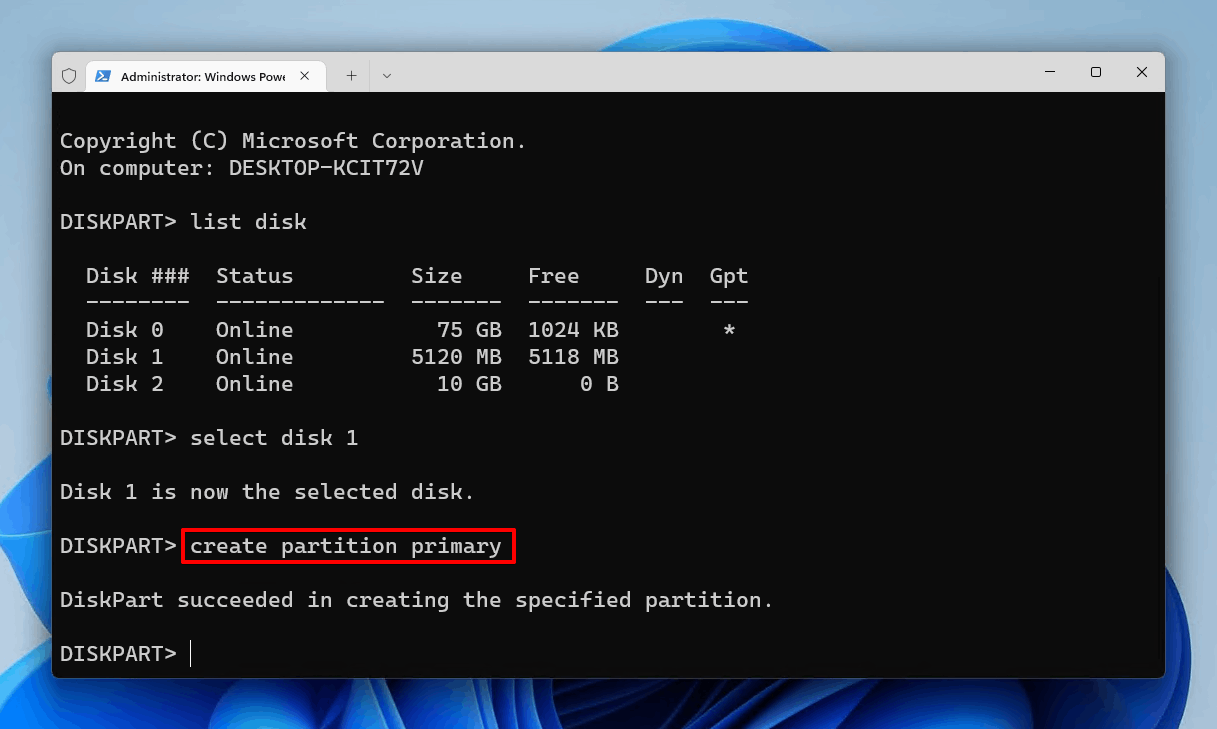
- Type
format fs=ntfs quickand press Enter.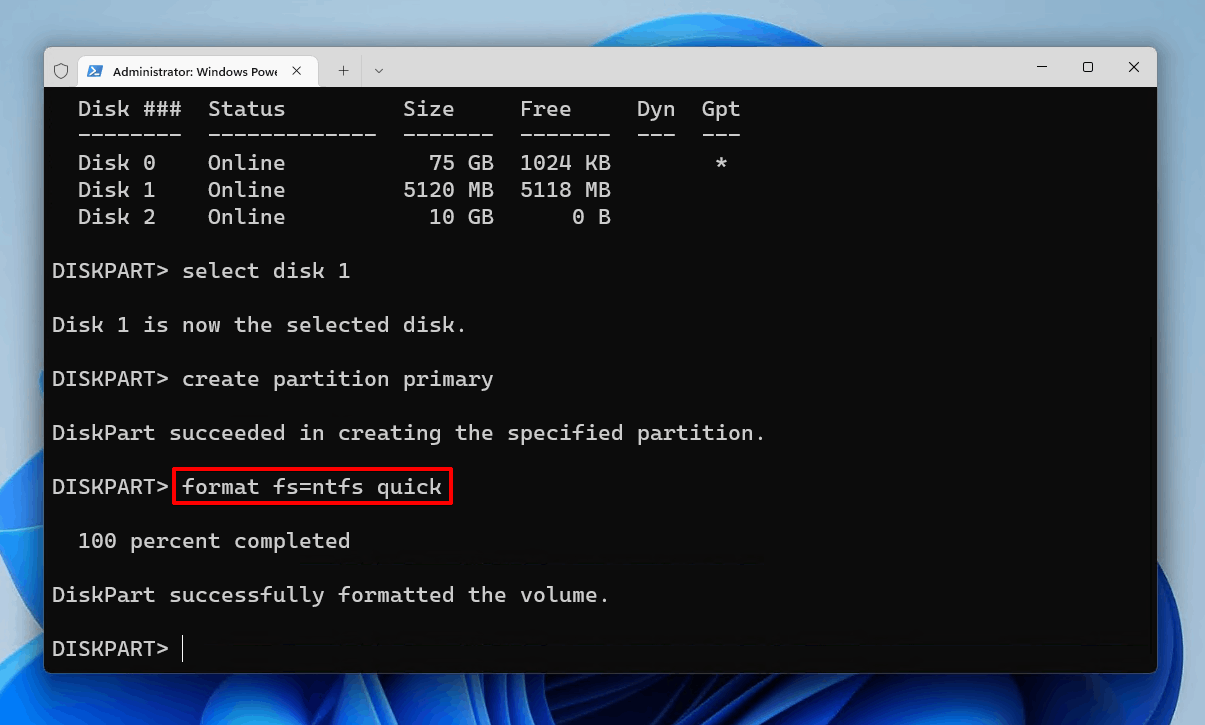
- Type
assignand press Enter.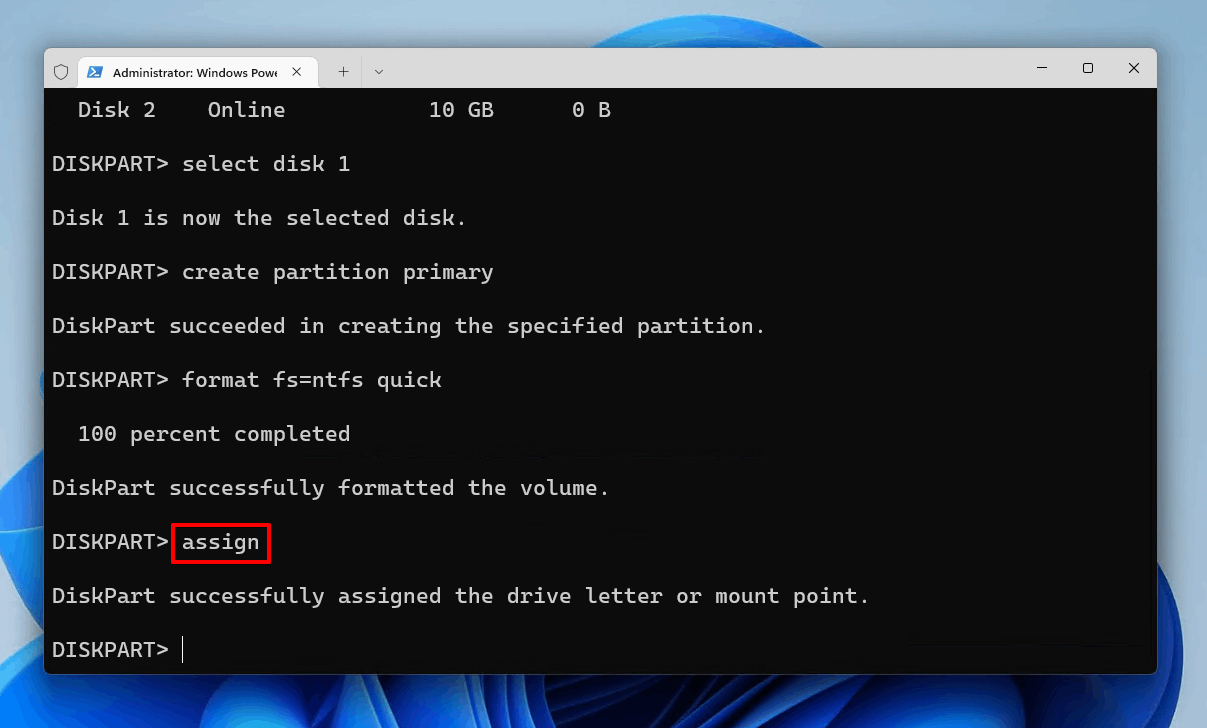
- Type
exitand close the window.
How to Restore a Missing Recovery Partition
If you’re getting an error every time you try to reset your computer, it’s most likely because the recovery partition has been deleted or corrupted. Without a working recovery partition, you won’t be able to reset your computer or recover it from a critical system failure.
You will need your Windows installation media for this part. Be sure it’s connected to the computer before starting.
If you’re stuck wondering “How do I fix a missing recovery partition in Windows?”, we’ll guide you through creating a new recovery partition using these steps:
- Right-click Start and click Terminal (Admin).

- Type
mkdir c:\tempand press Enter.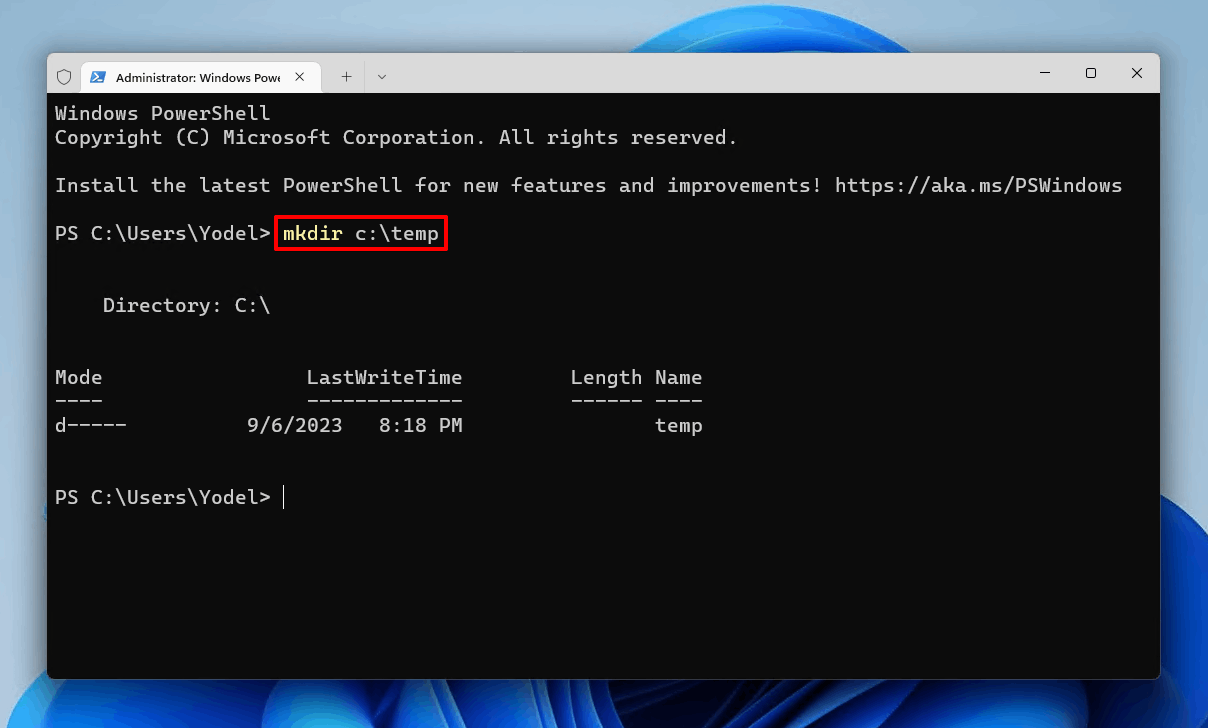
- Type
dism /mount-wim /wimfile:"e:\sources\install.wim" /index:1 /mountdir:"c:\temp" /readonly. You may need to change the E: drive letter according to what drive letter is assigned to your Windows media. Press Enter.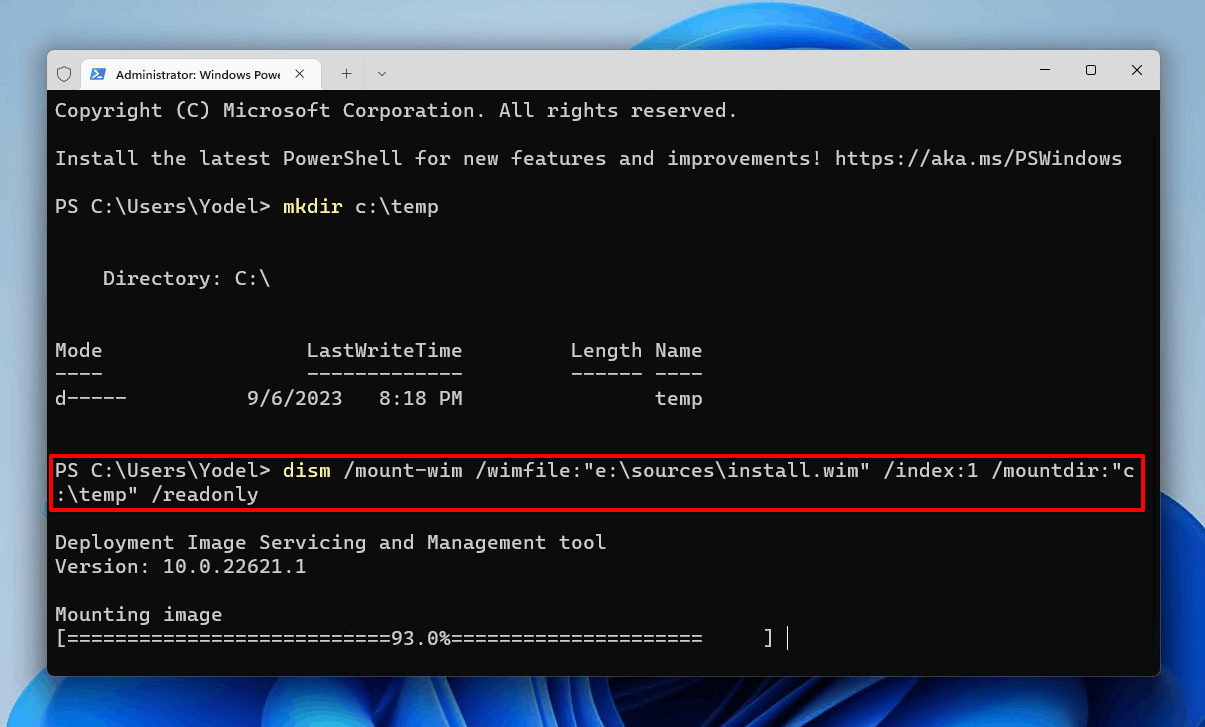
- Navigate to the following path:
C:\temp\Windows\System32\Recovery
Copy the Winre.wim file.
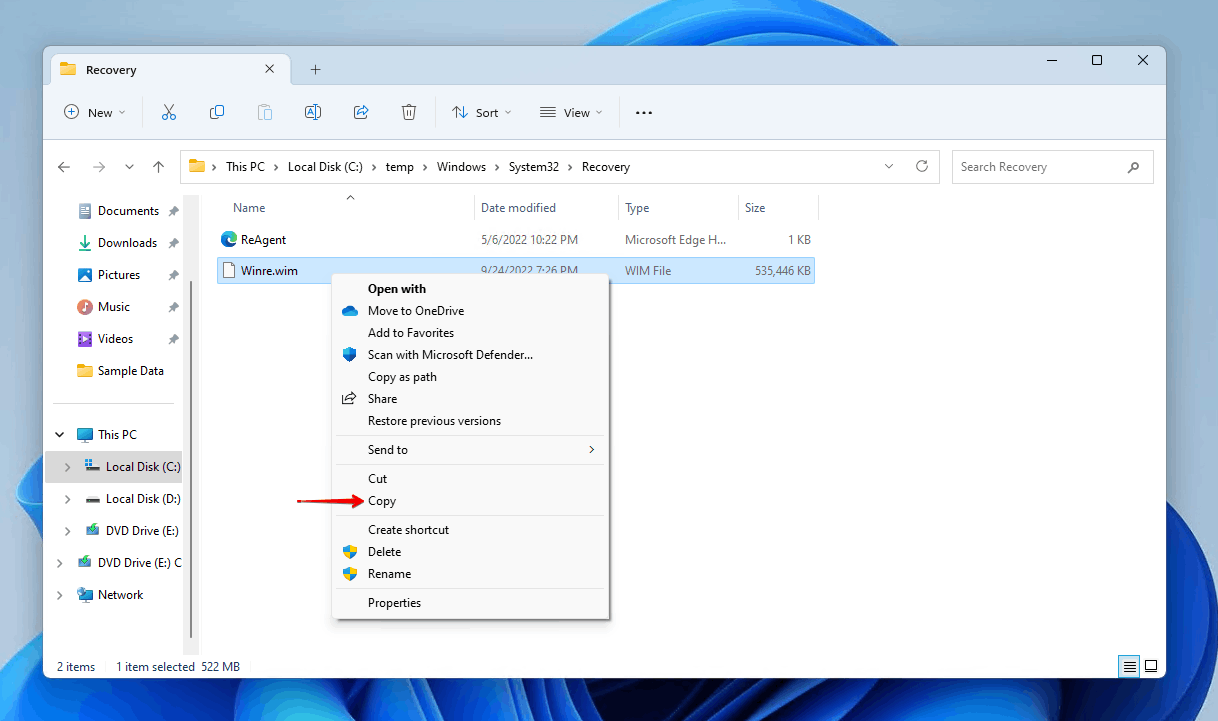
- Navigate to the following path:
C:\windows\system32\Recovery\
And paste the Winre.wim file.
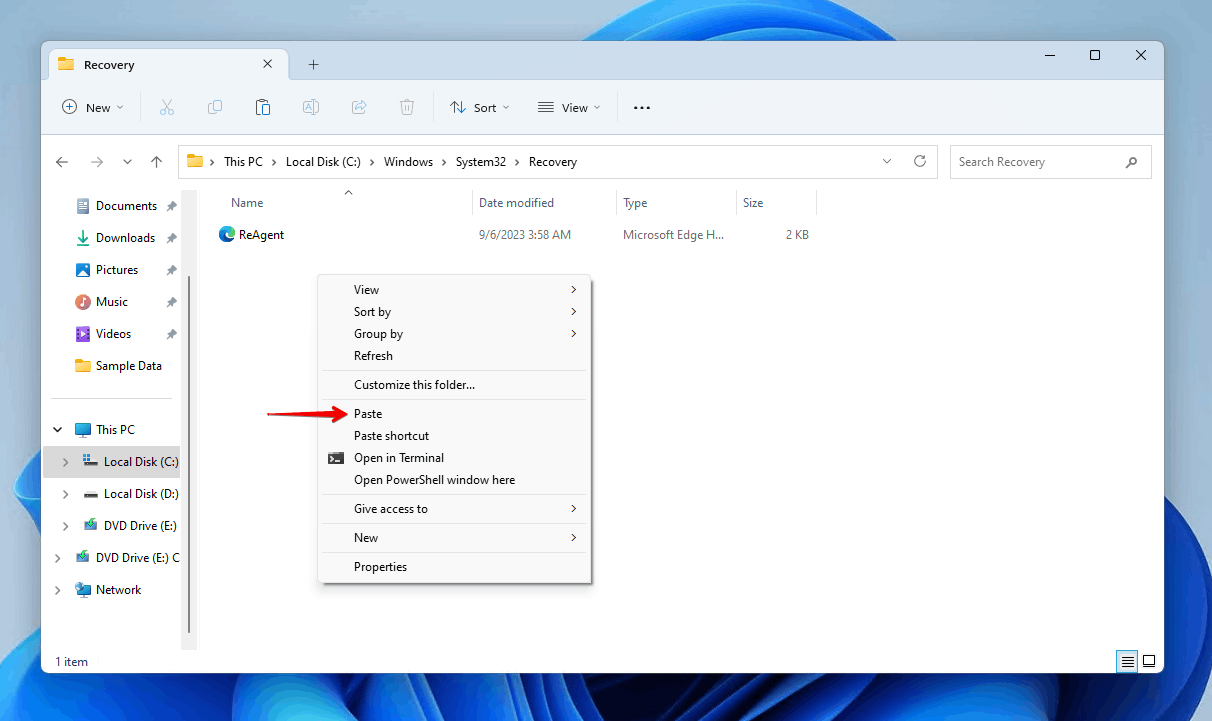
- Return to Terminal and type
DISM /unmount-Wim /MountDir:"c:\temp" /discard. Press Enter.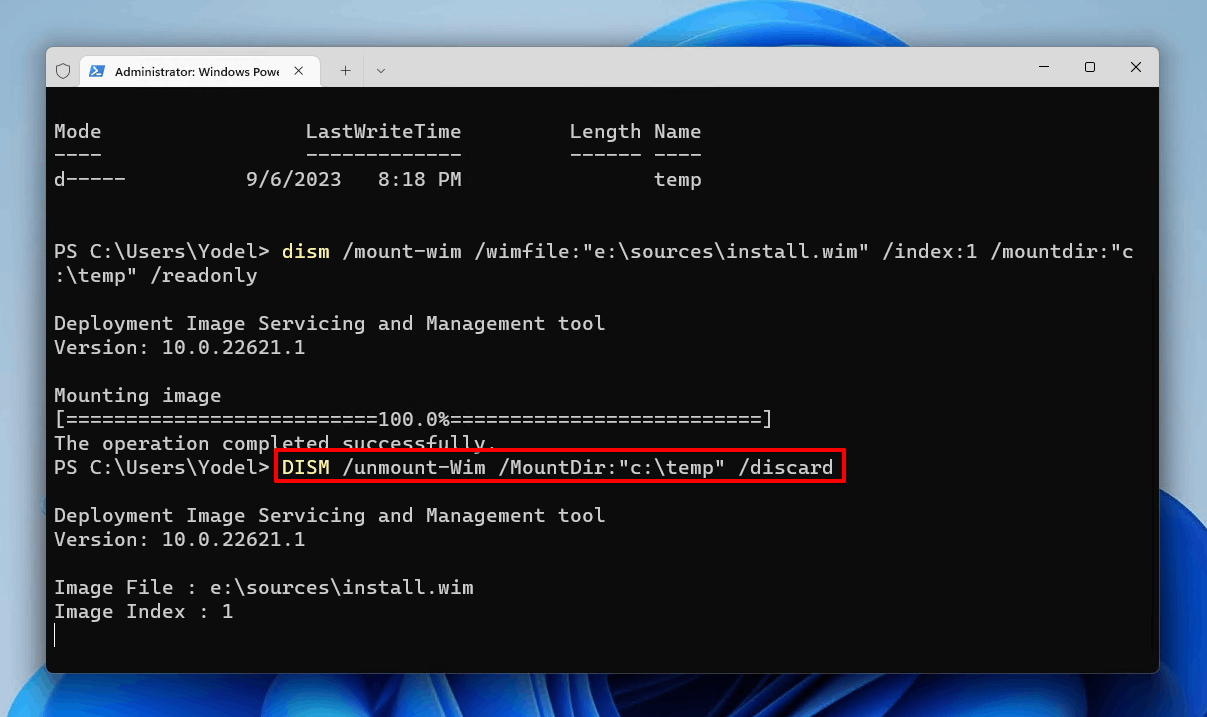
- Type
diskpartand press Enter.
- Type
list diskand press Enter.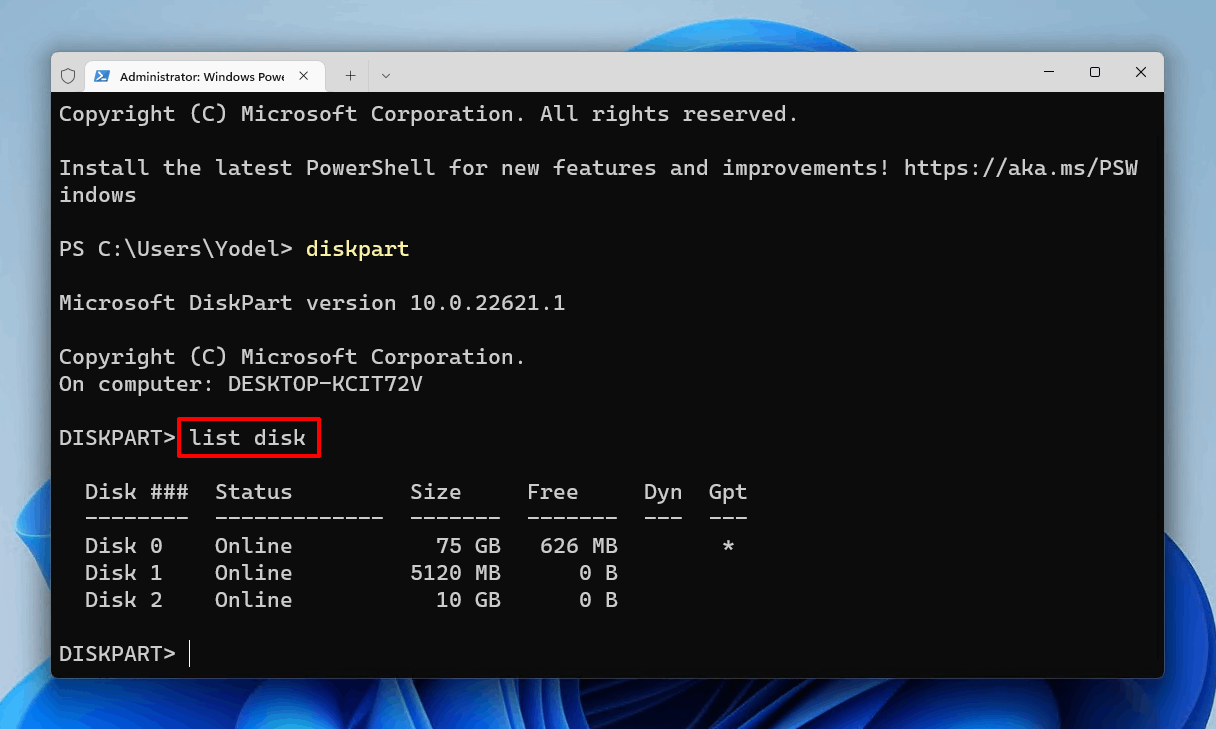
- Type
select disk *. Replace * with your system drive’s disk number. Press Enter.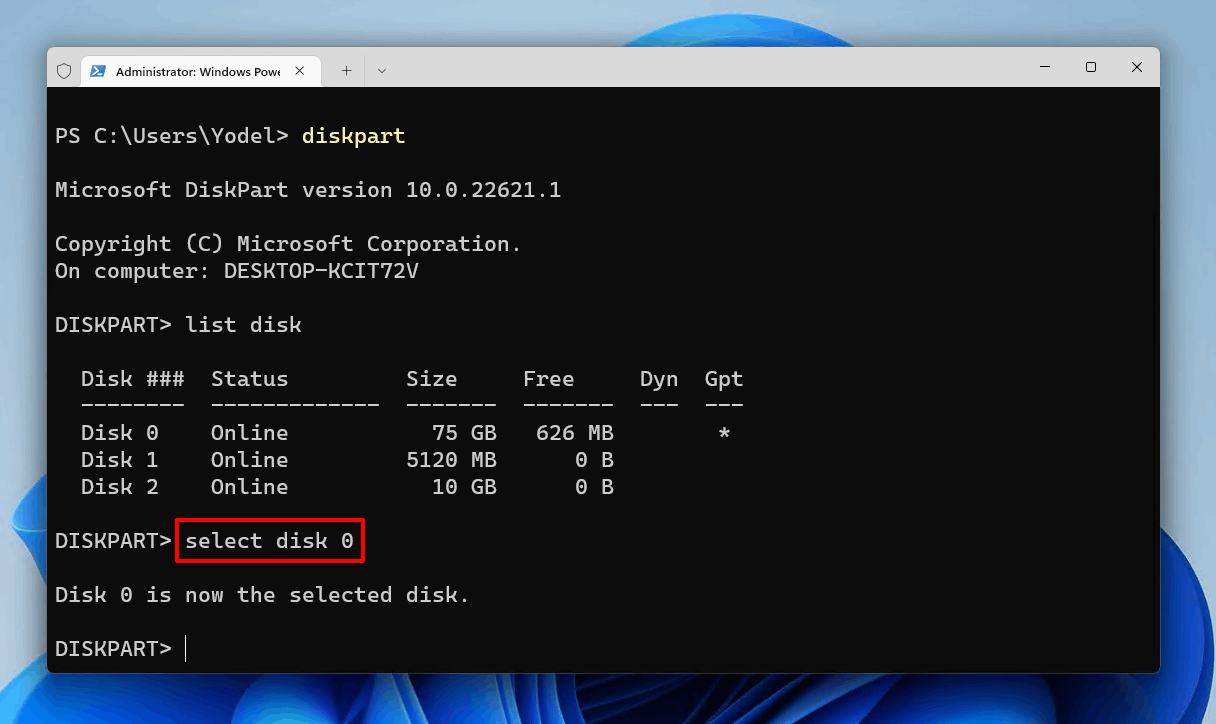
- Type
list partitionand press Enter.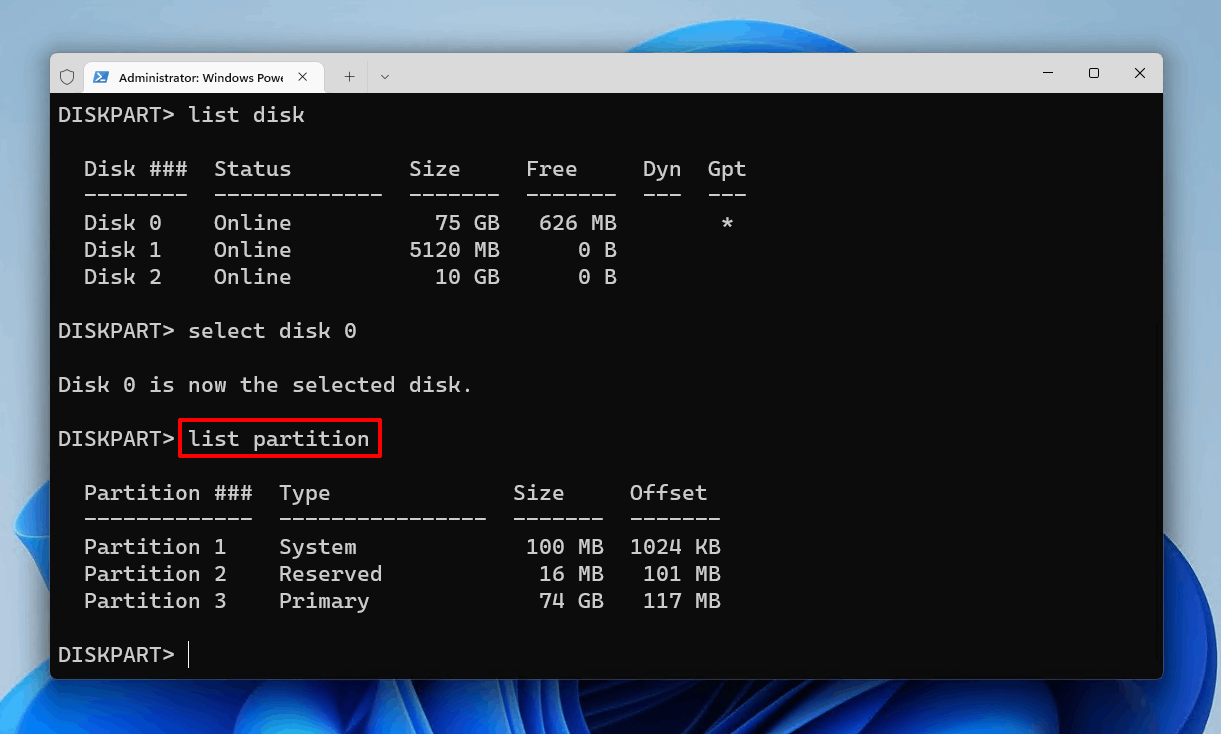
- Type
select partition *. Replace * with the partition number that is the biggest size. Press Enter.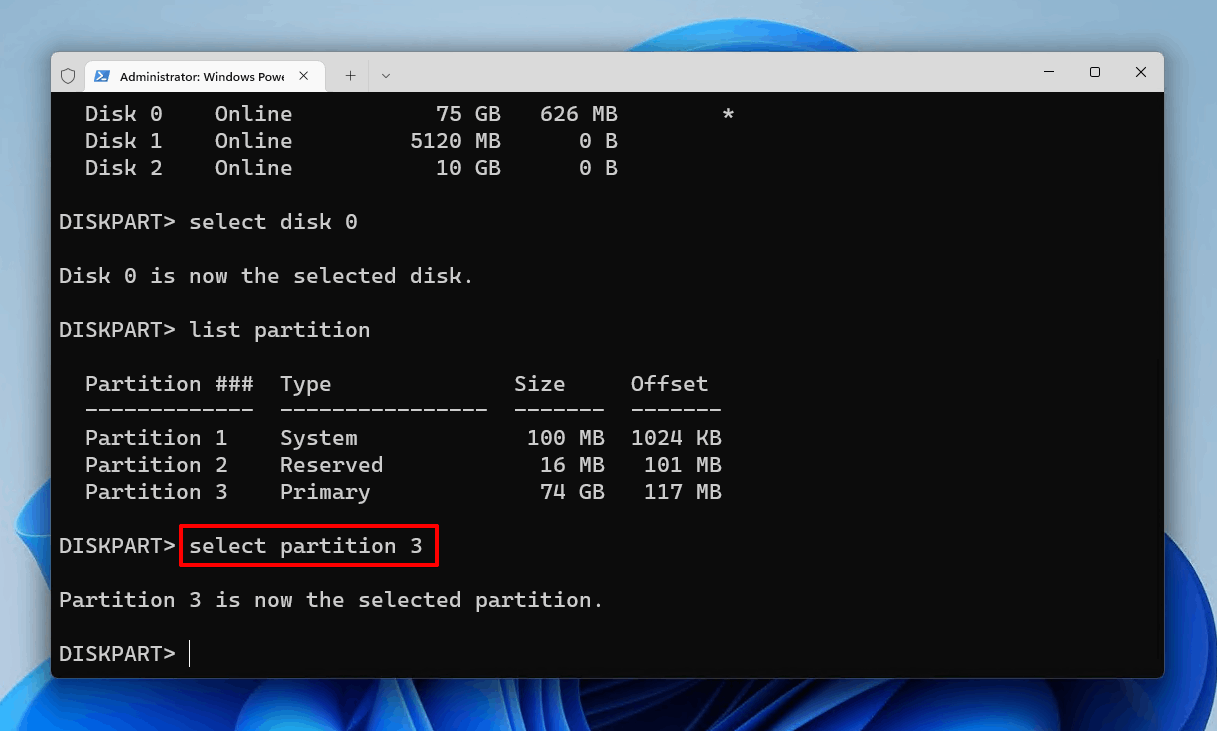
- Type
shrink desired=700and press Enter.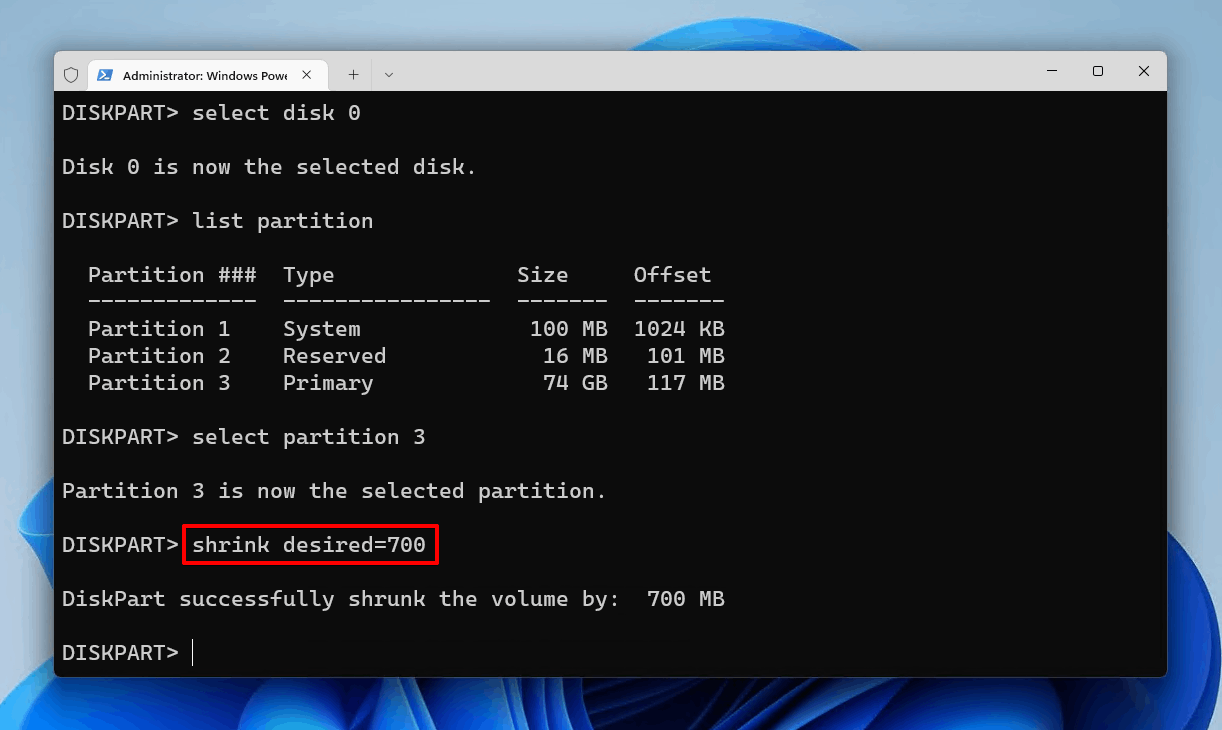
- Type
create partition primaryand press Enter.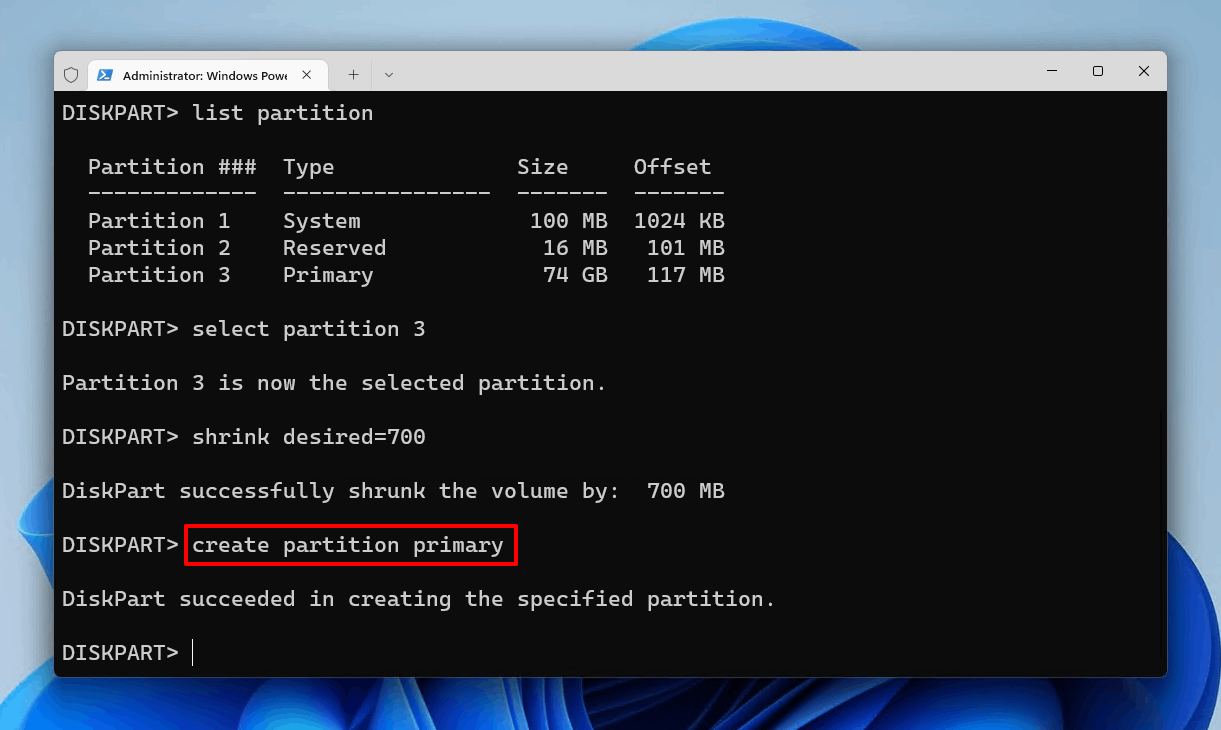
- Type
format fs=ntfs quick label=”winRE”and press Enter.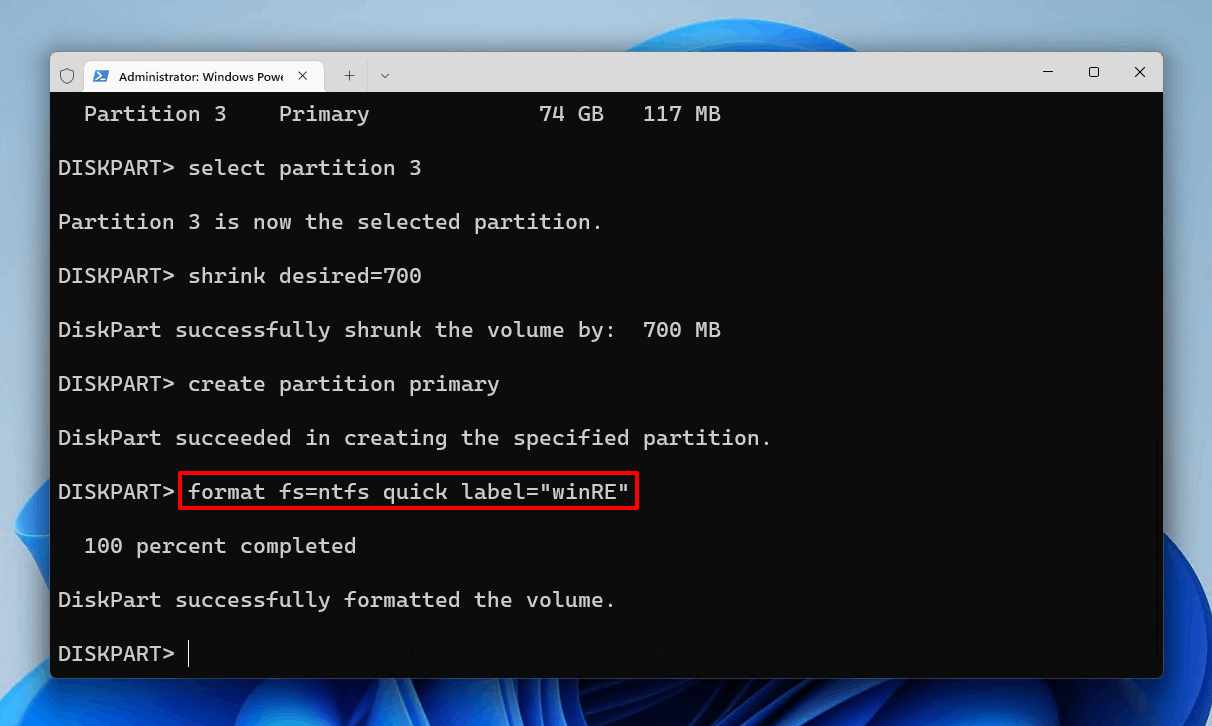
- Type
set id=de94bba4-06d1-4d40-a16a-bfd50179d6acand press Enter.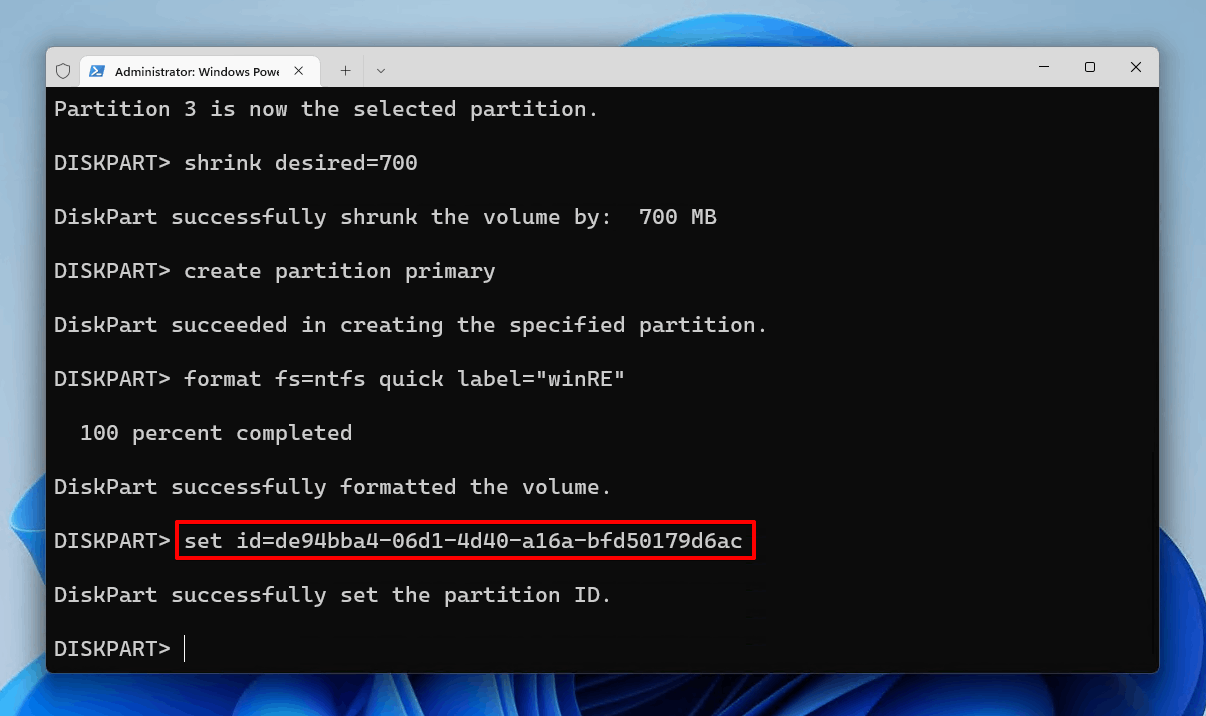
- Type
exitand press Enter. - Type
reagentc /enableand press Enter.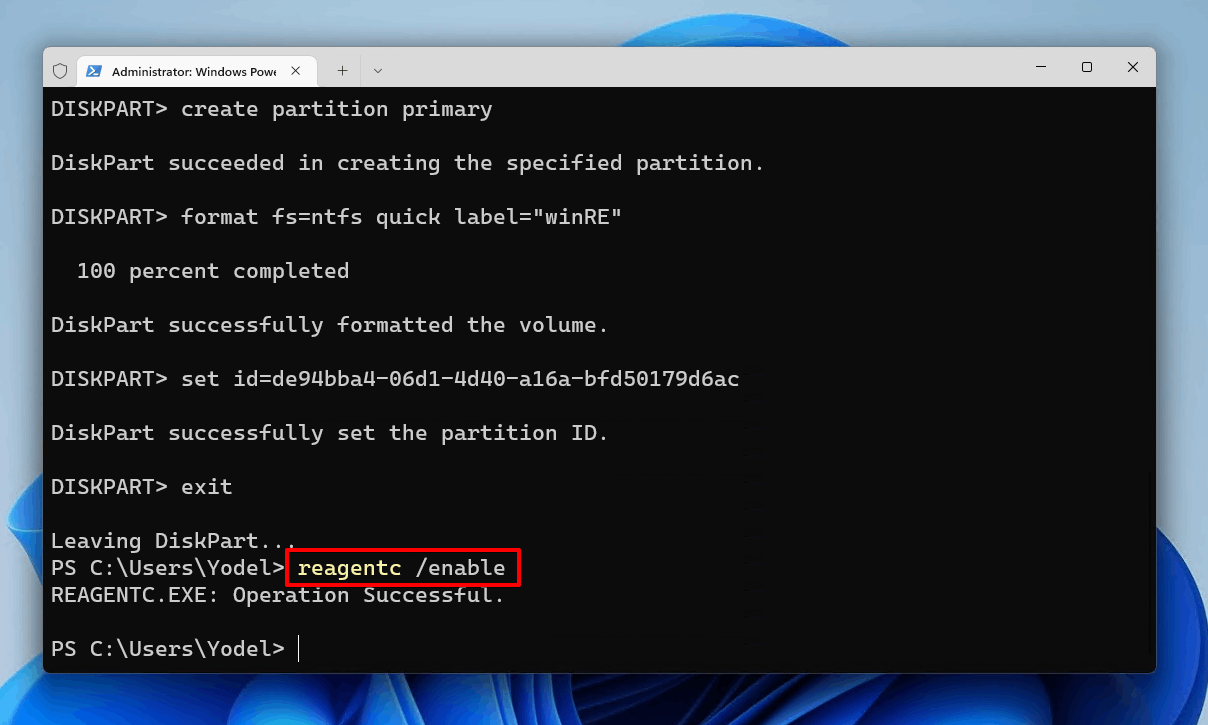
Conclusion
If you notice that one of your partitions has vanished, it indicates that something has gone wrong with your drive. Before you jump into troubleshooting the problem, we advise you to recover any data that’s stored on the affected drive as soon as possible.
To restore the missing partition, try assigning a drive letter to the partition in Disk Management. If that’s not possible, you can try restoring the deleted or lost partition using the data recovery program TestDisk. If that still doesn’t work, you should instead just recreate the partition from scratch and move the data back across.
